The post Islamic Education Continues to Advance appeared first on Islamic Horizons.
]]>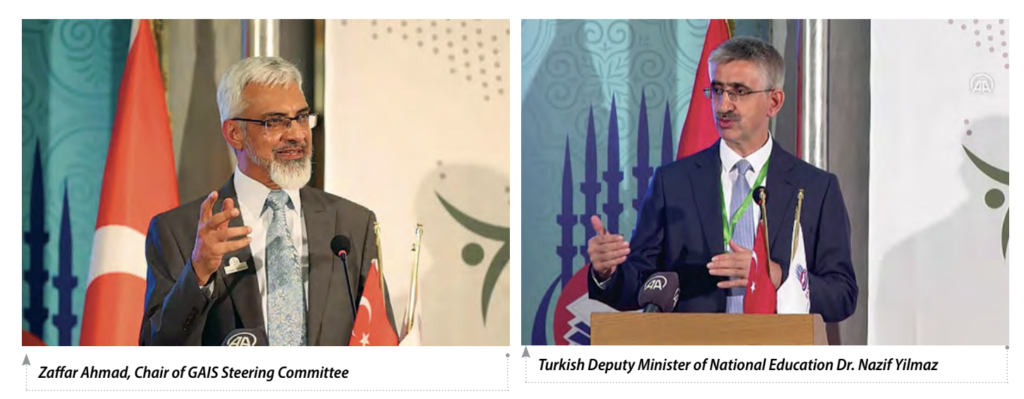
By Silma Ihram
January/February 2023
As a former principal and founder involved in education since the 1980s, it has been a joy over the years to connect with other pioneers in the newly emerging field of Islamic education. Most of them, whether from post-colonial Muslim-majority countries or Western countries, have struggled independently with secularism’s pervasive existence in the public education sector as Western education became the essential requirement for professionals globally. Although facing similar challenges and difficulties, many of these individuals had little contact with each other — myself included.
One exception was the First World Conference on Muslim Education (Makka, 1977), which represented a rising awareness of the need for Islamic education and its related challenges. Luminaries of the time grappled with the global decline of holistic Islamic education: Naquib al Attas, the Malaysian philosopher who pioneered the Islamization of Knowledge concept; Syed Ali Ashraf (director-general, World Center for Islamic Education, Jeddah, d.1988), Ismail al-Faruqi (murdered in 1986), Abdullah Mohammed Zaid (member, editorial board, Islamiyat Almarifah) and others.
The 350 Muslim scholars who attended — more than practitioners — planted seeds of inspiration, identified key areas to address (e.g., religious vs secular education, perennial and acquired knowledge) and discussed how education could help meet the needs of the umma, society, Muslim minorities, as well as for educating women and youth.
As the development of Muslim schools gathered pace throughout the late 20th century, subsequent world conferences focused on specific areas of concern, such as resources, training and curriculum. However, many of these discussions didn’t filter down to those involved in establishing Muslim schools in the West, Africa and Muslim-majority countries. Nearly 50 years later, the key points raised in that first conference have yet to be resolved.
In 2022, now that Islamic education has become a prominent addition to many countries’ private schooling systems, the Global Association of Islamic Schools (GAIS) was established “to coordinate the work of emerging international Muslim schools.”
GAIS began in November 2021 as a small group of committed Muslim leaders in education who agreed to meet weekly online to discuss a possible global initiative. Within weeks a steering committee was established, along with a WhatsApp group that now includes 200+ international members. While its strategic vision is still being formulated, the organization has determined its overarching aim: to renew and transform Islamic education by providing thought leadership, networking opportunities and action-research focused on developing a holistic and relevant education for all students.
Much of the inspiration was drawn from and built on previous projects, such as the International Board of Research and Resources, formed to implement the 1977 conference’s aims and objectives in primary, elementary and secondary schools. However, its impact on the growing number of Islamic or Muslim schools globally was minimal.
After nearly a year of online meetings, GAIS held its first in-person retreat in Istanbul on Oct. 3-79, 2022. Over 80 delegates from 11 countries engaged in workshops, presentations and collaborative planning. The program was divided between strategic planning for GAIS and planning for the 2025 World Conference on Muslim Education. An extra day was allocated to visiting local schools.
One highlight was the gala dinner held in a former madrasa adjoining the historic Sultan Ahmed Mosque. Over a magnificent dinner and surrounded by ancient texts on well-used bookshelves, notable education leaders such as Ismail Tavman (president, Sultan Ahmet Mosque Waqf), Recep Şentürk (rector, Ibn Haldun University Istanbul), Nazif Yilmaz (deputy education minister), Mohamad Abdalla (founding director, The Centre for Islamic Thought and Education, The University of South Australia) and Yusuf Islam addressed the delegates. Zaffar Ahmed (principal, Al Falaah College, South Africa), who has driven much of GAIS’ organization, and Sheikh Abdul Mabud (director general, Islamic Academy in Cambridge, U.K), related the previous conferences’ history.
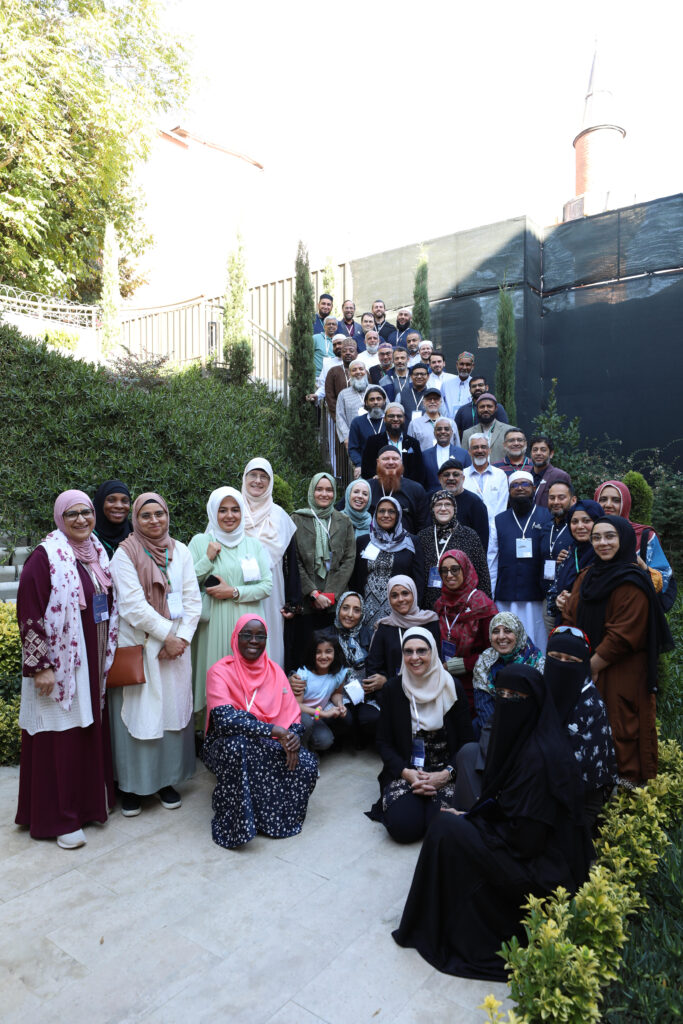
The concluding event of traditional art and music performances lifted everyone’s spirits with new hope, strengthened collegial bonds and built a shared sense of groundbreaking history.
As one delegate from Australia — where registered Muslim schools enjoy significant recurrent and capital funding, unlike many Muslim schools elsewhere — said, it was wonderful to connect with like-minded passionate educators. Despite the event’s tight schedule, participants managed to share success stories, discuss resources and distill what GAIS could and should provide to enhance the Islamic school sector.
Islamic curriculum and resources, along with a given country’s unique political, funding and training challenges, remains a significant barrier to Islam’s successful integration into a largely secular Western syllabus. As many countries have not yet developed an internal collaborative approach among their schools, there is significant duplication of resources and neglect of other areas.
The ongoing workshops and presentations generated a real sense of trust and openness, mixed with the passion for resolving common and pressing issues, among the attendees — even for the first-timers like myself. Those running the workshops inspired each other with anecdotes, lofty aims and examples of how they are seeking to bring Islam into the schooling sector.
Istanbul itself was a significant inspiration. Surrounded by six centuries of magnificent, beautiful mosques and madrassas, the history of each individual’s contribution is displayed at each location. Seeing its people’s high standards of adab and care for the poor (and even the many cats frolicking in mosque gardens and streets) was a reminder and realization of a Muslim society at its peak. We were delighted to see its students’ achievements, but also become aware of the constraints imposed by our own governments and education departments as to what Islamic content can be taught, the allocation of time for Islamic teaching as well as methods of integrating Islam.
Part of the challenge is whether such subjects as fiqh, ‘aqida, seera and Quran memorization and understanding should be added on as separate subjects, integrated with appropriate references or form the substrate of an Islamic pedagogy. The latter may necessitate a completely new approach to teaching in primary and high schools, one that can develop of new curricula across most subjects and supported by specific training for teachers. Such a task, which calls for significant time and resource invests in, will be impossible for many schools, given their current government’s restraints on registered schools.
In one of the keynote addresses, Zaffar Ahmed mapped out GAIS’ past and the future, giving the example of sea hibiscus or mahoe, a South African flower that changes its colors daily. GAIS may have started out as a collaboration among a few schools and school leaders, but like the sea hibiscus it continues to inspire those involved with new colors as it develops.
Like the umma, Islamic education’s many significant challenges mean that its final colors and potential won’t be realized anytime soon. Through GAIS and similar initiatives, however, a bond has been developed to strengthen and maintain the ongoing efforts to develop well-researched solutions. These solutions will be trialed, shared, expanded on and presented at the next World Conference of Muslim Education in 2025. To nurture and support our future generations, GAIS is focusing on the tarbiyya of its leaders in education. This requires striving for ikhlas (sincerity [working for God’s sake]), ihsan (excellence), istiqama (steadfastness) and divine guidance and mercy. If successful, Islamic education has the potential to provide realistic alternatives to the prevailing secular education system.
As GAIS is still in its early stages of formation, we welcome input and support from all individuals and organizations committed to making Islamic education transformative. For further information, contact Zaffer Ahmed (chair, GAIS Steering Committee) at [email protected].
Silma Ihram, University Liaison Officer, University of Adelaide, Australia.
Tell us what you thought by joining our Facebook community. You can also send comments and story pitches to [email protected]. Islamic Horizons does not publish unsolicited material.
The post Islamic Education Continues to Advance appeared first on Islamic Horizons.
]]>The post Another First for New York appeared first on Islamic Horizons.
]]>By Kiran Ansari
January/February 2023
When the world’s third largest public library, the New York Public Library (NYPL), appoints its first curator for Middle Eastern and Islamic Studies, it’s important to take note. Within the U.S., this massive and prominent organization is second only to the Library of Congress in Washington, D.C.
When Dr. Hiba Abid applied for the curator position, she was enthusiastic about the NYPL’s goals and mission. Although she only started this new job in October 2022, she has always been interested in Middle Eastern manuscripts. In 2017, Abid earned her PhD in Islamic art history and codicology in Paris. Her research focuses on the material culture, art history and historical anthropology of early modern North Africa. She has a special concentration on devotional books dedicated to the Prophet (salla Allahu ‘alayhi wa sallam).
“The Middle Eastern and Islamic history collection was built in the early 20th century and made The Library one of the most important and interdisciplinary research institutions in New York City,” Abid said. “To this day, I wish more scholars and the broader communities were aware of its importance and richness.”
Applying for this position seemed like a natural step in her career, since the most enjoyable parts of her previous positions were librarianship and public programming. Fluent in Arabic, French, English and Italian, she has also worked in manuscript libraries and museums such as the Louvre (Paris) and the Pergamon (Berlin), where she curated exhibitions on Islamic art. Prior to joining NYPL, Abid was a faculty fellow at the Silsila: Center for Material Histories, a research center founded by Prof. Finbarr Barry Flood at New York University (NYU). She also taught Islamic art history and codicology of Arabic manuscripts at NYU and the Institute of Fine Arts.
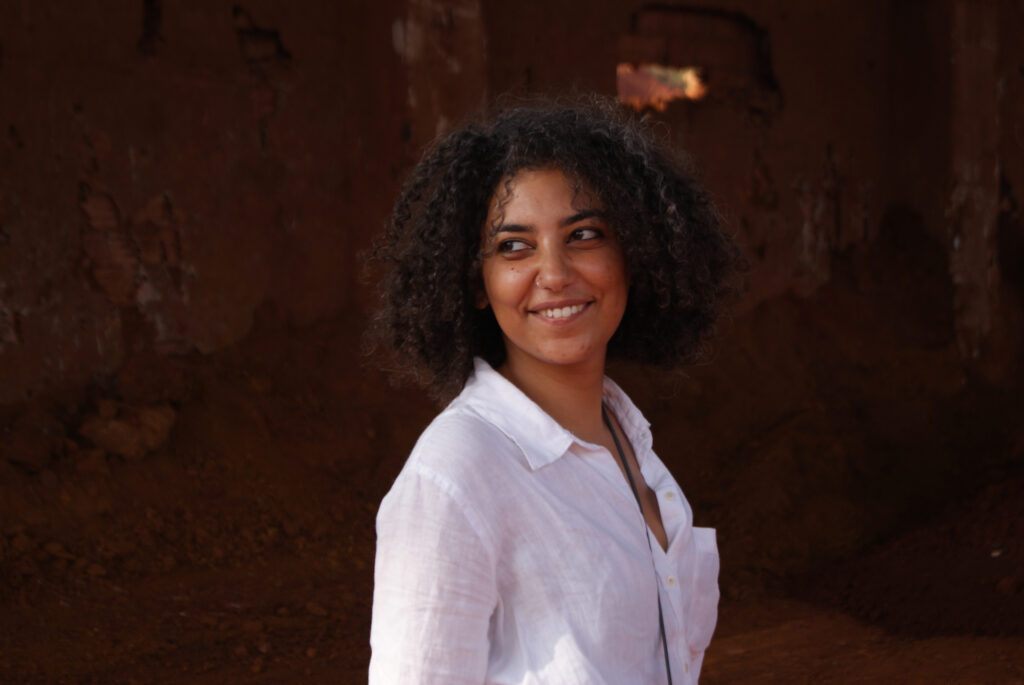
Abid has published several articles and book chapters on devotional books dedicated to Prophet Muhammad. She demonstrated a methodology that lies at the intersection of art history, textual analysis and anthropology. In addition, she suggested that analyzing the manuscripts will help us uncover the intimacy of a private practice lying at the heart of Muslim piety.
Her vision is to promote the NYPL’s extensive interdisciplinary collections, reflecting not only the region’s cultural and religious diversity, but also the diversity of the region’s communities and diasporas in New York City.
“Our collections include manuscripts of unique historical, social and art historical importance, from the Persian, Indian-Islamic, Turkish and Arab worlds,” Abid said. “These include early maps of the region, rare books of poetry, law, and religion, illustrated lithographs and printed volumes, travel accounts and archaeological expeditions.” In addition, the Library houses extensive special collections, with 400+ Islamic manuscripts and 3,000+ miniatures. The collection includes art ranging from classic Islamic architecture to works by contemporary painters and photographers.
NYPL seeks to build on its collections documenting diasporic communities from the Middle East and the Islamic world in North America, particularly in New York City.
“Many people within New York City or the academic community don’t think of The New York Public Library as a place for Middle Eastern and Islamic culture and history. This is what I would like to address in my work through a solid study and use of the collection and public programs, in collaboration with scholars and my colleagues,” Abid noted.
She believes there are people in New York City who wish to understand their roots, the history of their community and identity. People outside of these communities are interested in learning more about the Middle East’s culture, even though they might feel intimidated or not know how to navigate the vast sea of resources available. She hopes to help them by providing the keys to these collections.
The Library has 92 locations, with branches in the boroughs of The Bronx, Manhattan and Staten Island. In these branches, librarians have been collecting materials — poetry books, novels, children’s literature, cookbooks and so on — from the Middle East and North Africa to serve local communities’ needs.
Abid finds it very rewarding to work with experienced curators covering other faiths or regions, for this allows her to learn from their experiences and challenges. For instance, Bogdan Horbal (curator, Slavic and East European collections) oversees the development of collections in vernacular languages, provides reference assistance to researchers and does outreach to the scholarly world.
Lyudmila Sholokhova (curator, the Dorot Jewish Collection), originally a specialist of modern Eastern European music, said that her work at NYPL led her to cover a much wider range of materials, including rabbinic literature from much earlier periods and other parts of Europe and the U.S. Through her work on the Library’s Jewish collections, she gives voice to this religious and cultural diversity and opens it to the broader public in New York City and beyond.
For both the general research library as well as its branches, Abid’s goal is to collaborate with librarians and other curators to present a wide range of materials. She plans to expand their collection from mainstream literature to materials echoing underrepresented ethnic, linguistic, geographic and religious voices, thereby serving communities from toddlers to scholars. Naturally this process will take time and evolve as the community and its diversity changes; however, she remains very optimistic.
“The Library is a fundamental part of New York. However, many of today’s New Yorkers — particularly immigrants — do not necessarily know that they have such valuable resources at their fingertips,” Abid said. “I hope I can help serve change that.”
Sidebar :
Did you know that the New York Public Library has…
- • 92 locations
- • 4 research centers
- • 51 million items for research and circulation
- • 18 million patrons visit annually
• 32 million visits annually to its website (https://www.nypl.org) from 200+ countries.
Kiran Ansari is a freelance writer in suburban Chicago.
Tell us what you thought by joining our Facebook community. You can also send comments and story pitches to [email protected]. Islamic Horizons does not publish unsolicited material.
The post Another First for New York appeared first on Islamic Horizons.
]]>The post The Top 10 Young Adult and Middle Grade Books to Read This Winter appeared first on Islamic Horizons.
]]>January/February 2023
With daylight savings times happening, the days are shorter and the nights longer, which means it’s the perfect time of the year to read a good book.
When it’s cold out, there’s nothing better than grabbing a fleece blanket and a good book. This winter there are so many options to pick from, both Young Adult (YA) and Middle Grade (MG) fiction and nonfiction books that can be read by anyone (for the age listed and above).
I read each book listed below. They will appeal to different readers. Graphic novels are included for those who prefer them.
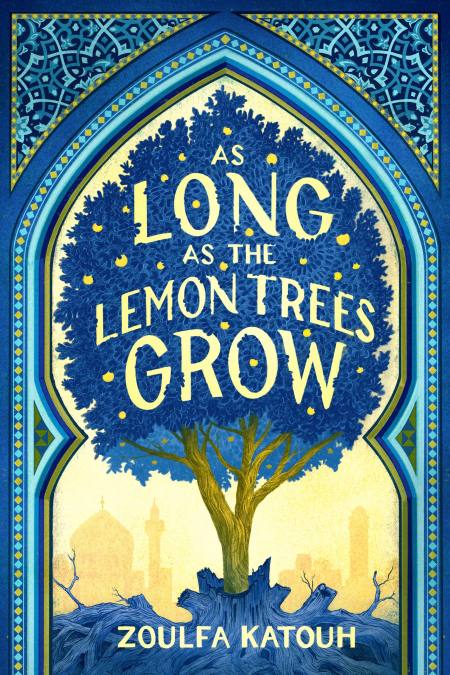
As Long as The Lemon Trees Grow (Zoulfa Katouh)
This YA novel is about the situation in Syria after the ‘Arab Spring’ and the ensuing civil war. A young Muslima’s life is turned upside down by the war. The story depicts how life was before, during and after the war. When Salama’s sister-in-law Layla gets pregnant, Salama needs to make the difficult choice to leave Syria to keep everyone safe.
This book, an eye-opening and compelling debut, is good for tenth graders and up.
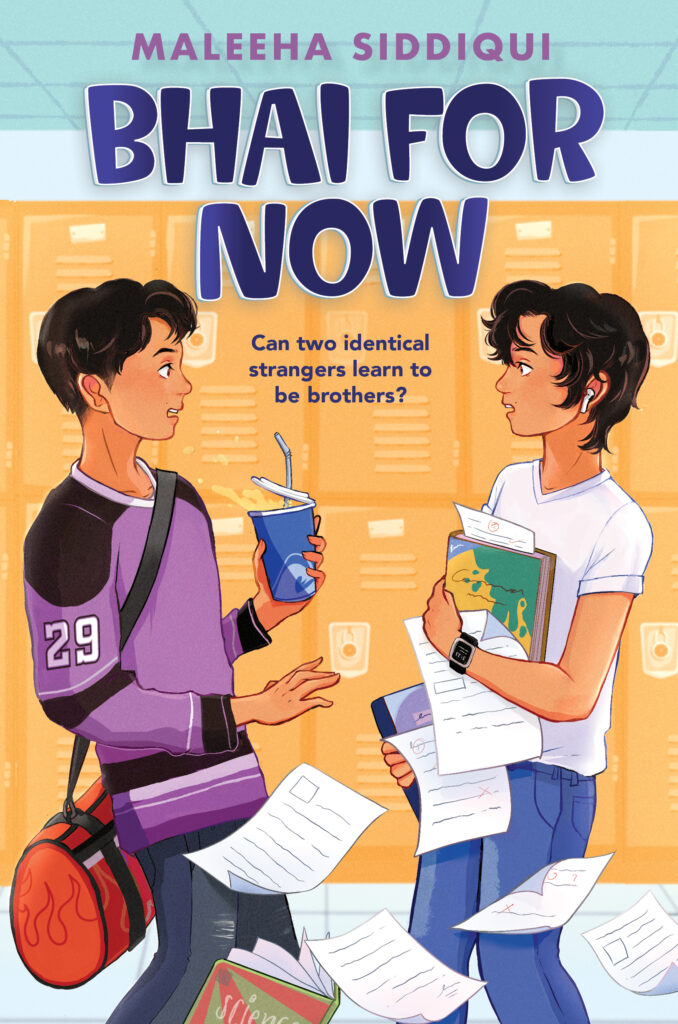
Bhai for Now (Maleeha Siddiqui)
Pakistani-American Maleeha Siddiqui enjoys telling unapologetically Muslim stories for people of all ages. “Bhai for Now” is a Parent-Trap inspired MG book with twin boys Ashar and Shaheer. As Shaheer and his father are always on the go — the latter ends up working in many places — Shaheer stops believing he can find someplace to call home and just be in one place.
Ashar and Shaheer are complete opposites. When they meet on Shaheer’s first day of school, the resemblance is astonishing. It doesn’t take them long to figure out that they’re twins, separated at birth. They’re willing to do whatever it takes to get to know the missing parent, even if it means switching places. This is a book about two long-lost brothers who hate each other but eventually acknowledge how much they need each other. The two boys’ personalities clash.
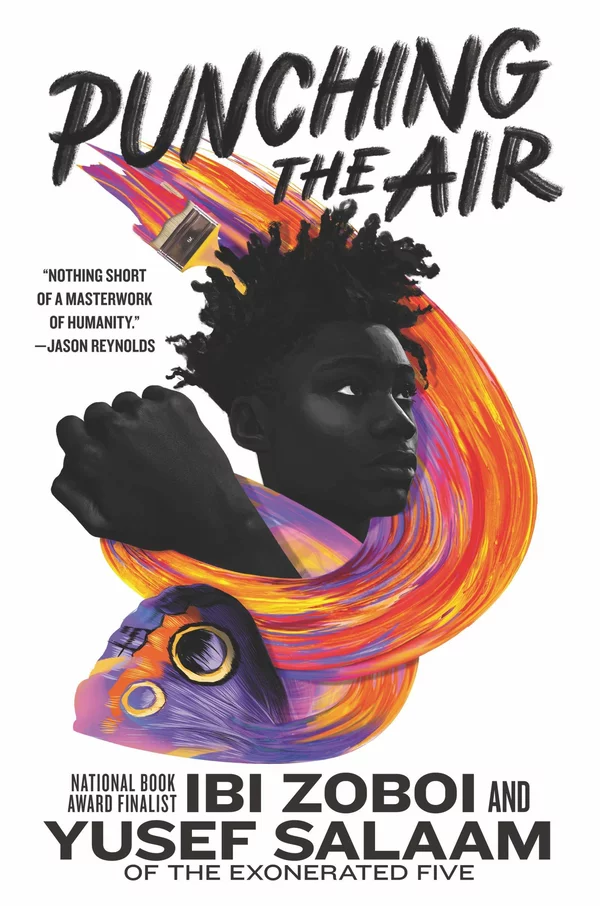
Punching the Air (Ibi Zobi and Yusuf Salaam)
Told in novel verse, the authors tell the tale of sixteen-year-old Amal, an aspiring artist with a bright future — until he’s imprisoned for getting caught in a fight. The book highlights how the odds were always stacked against him and that he’s living in an unsympathetic and prejudiced world. This is for ages 14-17 and above.
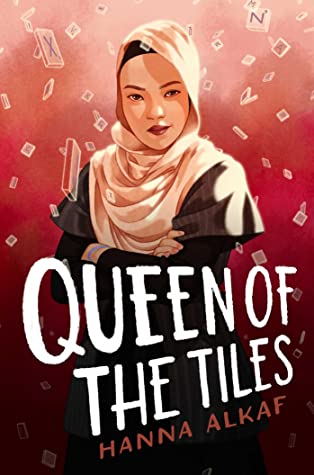
Queen of the Tiles (Hanna Alkaf)
Hanna Alkaf’s newest book is a mystery with a Scrabble competition featuring protagonist Najwa Bakri, a talented Muslim player determined to win this year’s annual championship. When her best friend Trina dies during a match, the death is presumed to be due to natural causes. But when Najwa returns for next year’s competition, she realizes there was more to it than she’d been led to believe. Moreover, if she can’t figure out what happened, she could be next! This fast-paced page turner will keep you up reading from the very beginning to the end.
This book, set in Malaysia, is perfect for ages 14 and up.

Love from Mecca to Medina by S.K. Ali
“Love from Mecca to Medina,” the sequel to the author’s “Love from A to Z,” follows the story of Adam and Zeyneb, a married couple. Adam is in Doha, making plans for Umrah and worried about where his next paycheck will come from, and Zeyneb is a stressed-out grad student living in Chicago. But then they are given a marriage gift: to attend Umrah together during Thanksgiving break. The trip, which is nothing like they expected it to be, will test their faith and marriage. Can they make it work?
This book is ideal for ages 16 and up.
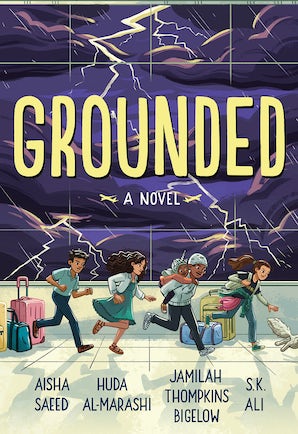
Grounded (ed. Aisha Saeed)
This anthology contains contributions from Aisha Saeed, Jamilah Thompkins Bigelow, Huda Al-Marashi and S.K. Ali. After a thunderstorm strands Feek, Sami, Nora and Hanna at an airport, Hanna persuades the other three to help her find a lost cat. This is a zany middle grade adventure with a group of Muslim characters. I loved its family dynamics.
This book, which comes out on May 9, 2023, could be the perfect Eid gift for young children or teachers to add to their classroom libraries.

Ayesha Dean: The Istanbul Intrigue (Melati Lum)
Ayesha Dean is perfect for Nancy Drew fans. During a trip to Istanbul with friends, Ayesha uncovers a note about a treasure that has been missing for years. Unfortunately, she isn’t the only one looking for it. Even worse, her vacation is about to get more dangerous than she had anticipated.
This is for ages 10-13 and up. It was recently announced that this book, one of the first I’ve read set in Turkiye, will be adapted into a manga publication.
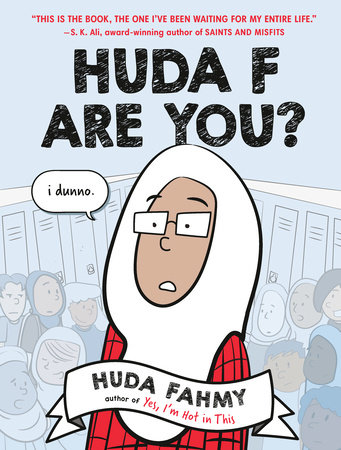
Huda F Are You (Huda Fahmy)
This graphic novel was written and illustrated by Huda Fahmy, known as @yesimhotinthis on Instagram. She tells the story of how after Huda and her family move to Dearborn, Mich., Huda realizes she’s not the only Muslim at school anymore — a realization that causes an existential crisis. This graphic novel is a hilarious exploration of self-discovery and what it means to be a Muslim.
“Huda F Are You” is perfect for high school students and up.
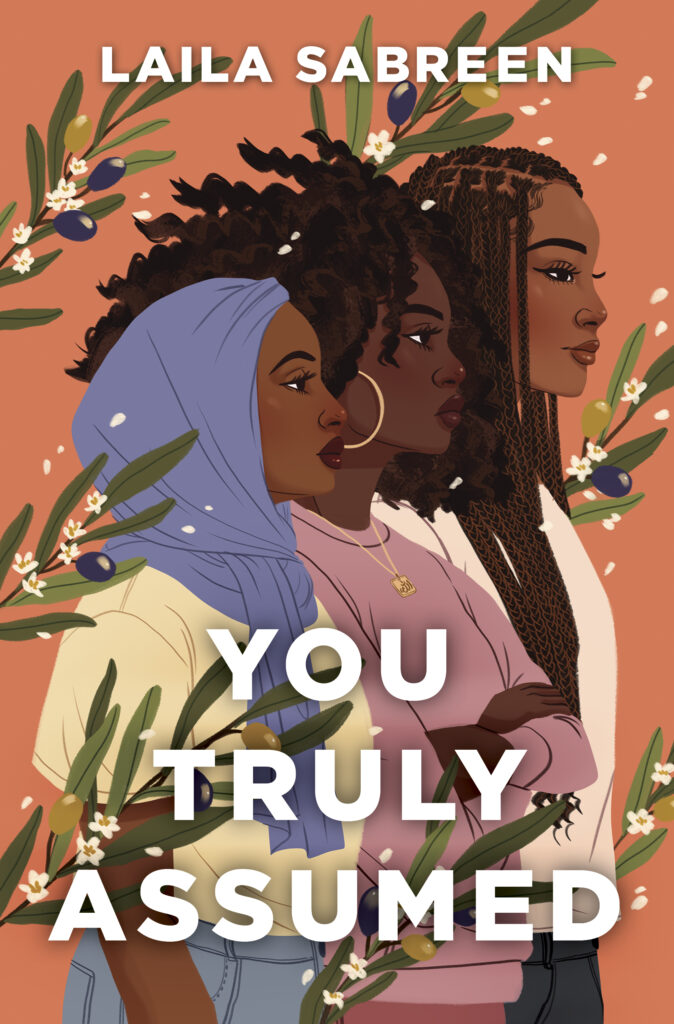
You Truly Assumed (Laila Sabreen)
Sabreen’s debut novel follows three African American Muslimas as they make a digital space for others and break common stereotypes on their online You Truly Assumed blog. This is a heartbreaking and eye-opening book. When one of the girls is threatened, they have a hard call to make: shut down the blog they’ve worked so hard on, or stand up for what they believe in, even if it means endangering themselves.
“You Truly Assumed” is for ages 13 and up.
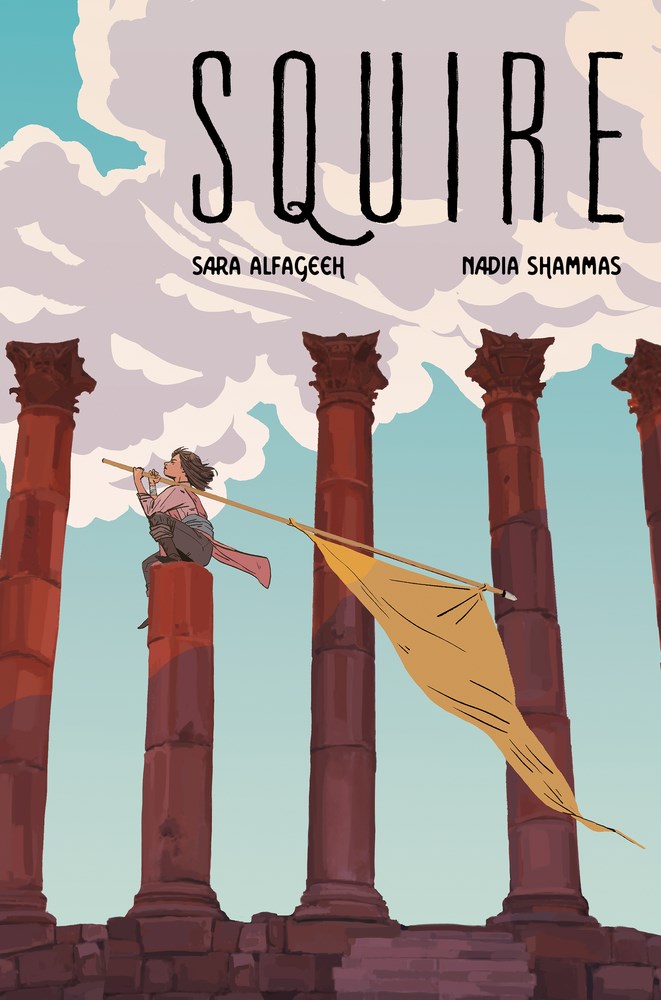
Squire (Sara Alfageeh and Nadia Shammas)
This graphic novel, set in the Ottoman Empire, follows Aliza, a young girl who has an epiphany: Battlefield glory is not as glamorous as she thought it would be. It’s also a story about creating a home with strangers who eventually become a close-knit family to her.
This novel, which also includes bonus scenes, is perfect for middle and high school students.
Amani Salahudeen (BA, The College of New Jersey, ‘20) is pursuing a master’s degree in education from Western Governors University.
Tell us what you thought by joining our Facebook community. You can also send comments and story pitches to [email protected]. Islamic Horizons does not publish unsolicited material.
The post The Top 10 Young Adult and Middle Grade Books to Read This Winter appeared first on Islamic Horizons.
]]>The post Editorial: The Good News from Malaysia appeared first on Islamic Horizons.
]]>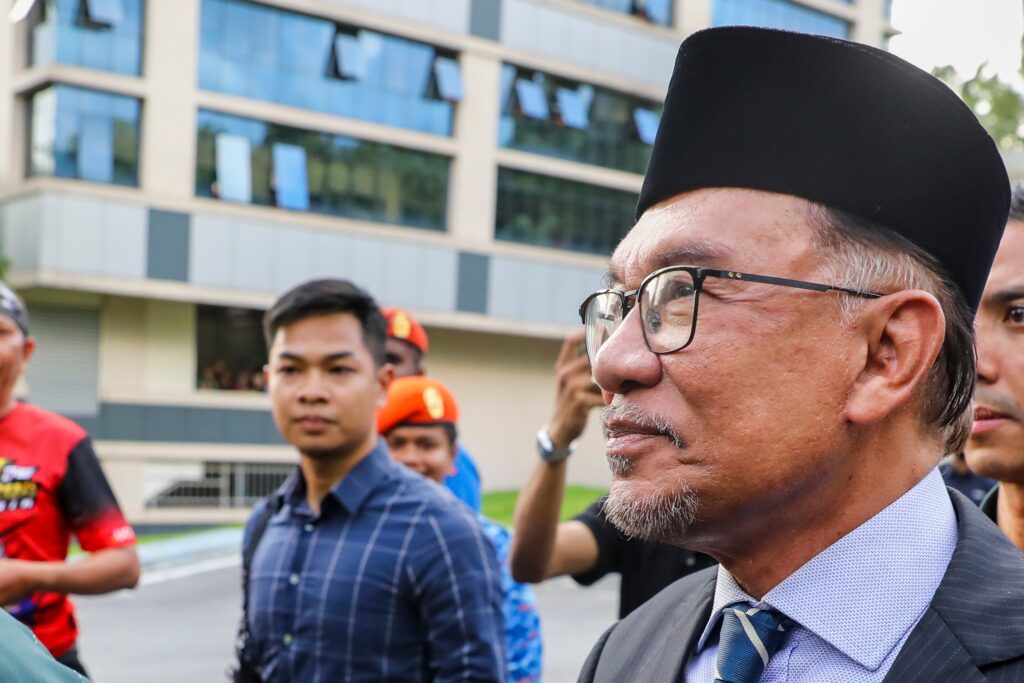
By Omer Bin Abdullah
January/February 2023
As we were finalizing this issue, an auspicious bit of news emerged: King Sultan Abdullah Sultan Ahmad Shah of Malaysia appointed Anwar Ibrahim, 75, prime minister after his party, Pakatan Harapan which had emerged as the largest one in Parliament, formed a political coalition to attain the majority.
It was the crowning moment of his 22-year struggle to lead the nation to a better future.
This news is of special significance to ISNA, given Anwar’s long association with its predecessor MSA, when the student Muslim Youth Movement of Malaysia organization was thriving under his leadership.
Anwar has continued to maintain close relations with Muslim American organizations, and they have returned the favor. For instance, after he fell out with Prime Minister Mahathir Mohamad and was jailed, ISNA invited his wife Dr. Wan Azizah Wan Ismail to address its annual convention. Interestingly, Mahathir, aged 97, ran against Anwar in this recent election and lost.
Anwar is one of the few contemporary Malaysian leaders who enjoys worldwide recognition. ISNA and Islamic Horizons wish him the greatest success with his stated mission of SCRIPT: Sustainability, Care and Compassion, Respect, Innovation, Prosperity and Trust. Indeed, this futuristic document could put Malaysia on the path to inclusive democracy and economic progress.
Unfortunately, domestic violence (DV) is perpetually in the news, especially in a society where quite a few people consider owning guns as essential as breathing. Domestic Violence Awareness Month, launched nationwide in October 1987, is always carefully observed. However, DV remains, showing no signs of decreasing.
We invited Dr. Basheer Ahmed (former professor of psychiatry, Southwestern Medical School, Dallas) to enlighten our readers about this issue. Hopefully, the wisdom he shares will inspire us to devise more effective efforts that transcend intervention.
Abusive behavior, he points out, is most likely learned at home. If abusers grew up in an abusive home environment, their children might consider it a domestic norm.
Quran 9:71 proclaims that all human beings — without exception — are equal, that men and women are spouses and that no one has a level of authority over others. Quran 4:19 describes the marital relationship as one of tranquility, kindness, mutual love and affection, respect, caring and mercy. Prophet Muhammad (salla Allahu ‘alayhi wa sallam) said, “The perfect believer is one who is the best in courtesy and amiable manners, and the best among you people is one who is most kind and courteous to his wives.” And yet many Muslimas continue to experience these tragedies. Domestic violence does not end until outside intervention takes place.
Despite serious attempts to educate and help both the abusers and the abused, however, intimate partner violence (IPV) prevalence rates are rising. In the Islamic context, an “intimate partner” refers only to the husband or the wife.
Although many avenues of healing are available, among them psychiatric consultation, the most important antidote is to help Muslim achieve taqwa — being conscious and cognizant of God, truth and piety, and holding God in awe (commonly mistranslated as “fear”).
As is often the case, good and bad came together. The sad news is the demise of Dr. Mohammad Nejatulllah Siddiqi, 92, the eminent economist and truly the father of Islamic banking. In addition to spending his career sharing his knowledge and guiding banking and finance practitioners, he has left many learned treatises, articles and speeches behind that will help Muslims institutionalize Islamic banking in their countries.
Other articles focus on Francophone and Native American Muslims, colorism within Muslim communities and the role — positive or negative — of matchmakers.
Tell us what you thought by joining our Facebook community. You can also send comments and story pitches to [email protected]. Islamic Horizons does not publish unsolicited material.
The post Editorial: The Good News from Malaysia appeared first on Islamic Horizons.
]]>The post The Death and Rebirth of a Sea appeared first on Islamic Horizons.
]]>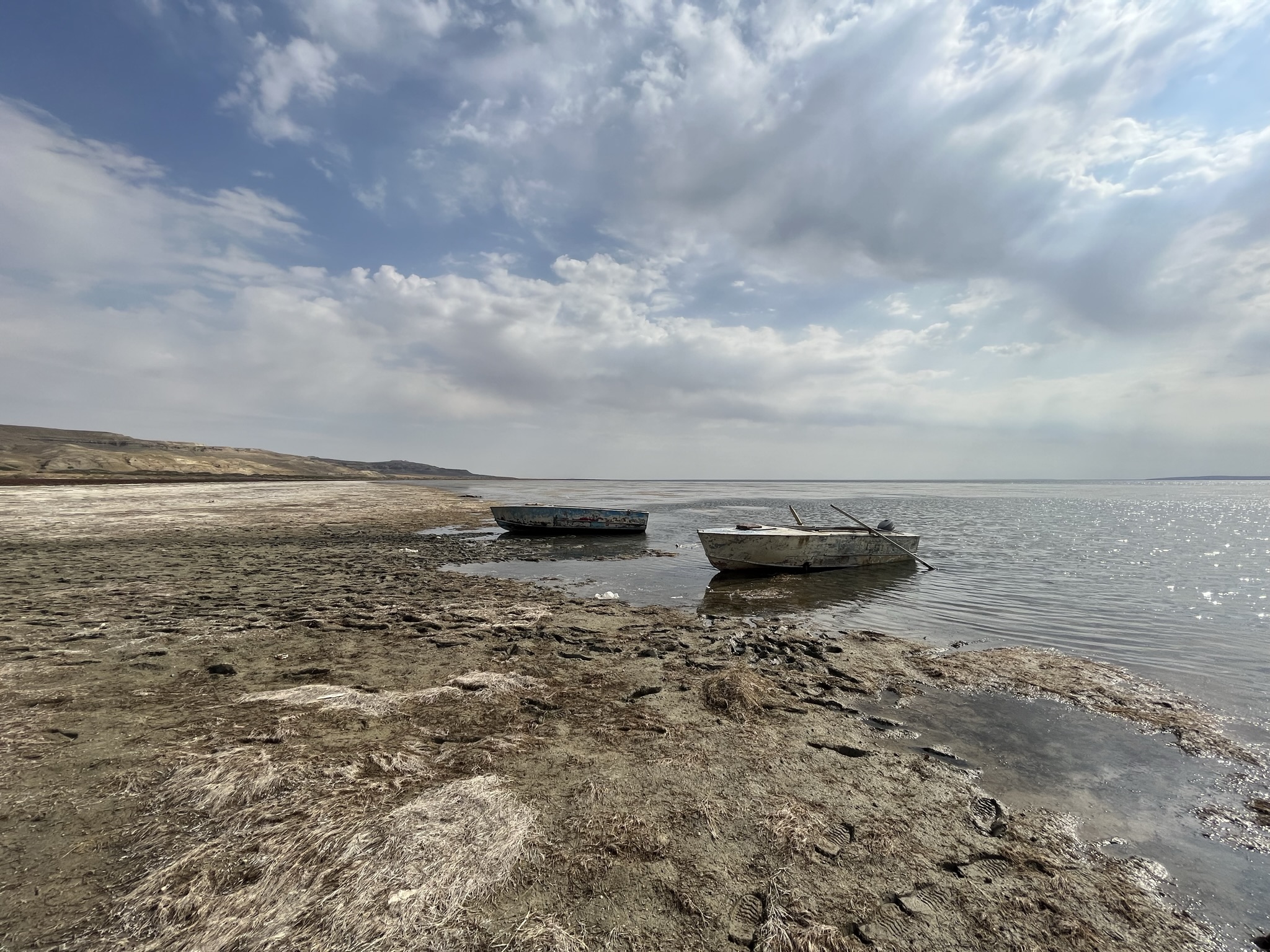
By Fawzia Mai Tung
January/February 2023
“One of the planet’s worst environmental disasters,” according to former UN Secretary General Ban Ki-Moon (2007-16), is the shrinking and eventual drying up of Central Asia’s Aral Sea. Islamic Horizons traveled there to investigate its recovery by Kazakhstan.
“I want to take pictures of those rusting fishing boats standing in the desert,” I told my guide, Serik Dyusenbaev. “You won’t find them anymore,” he replies matter-of-factly. What? I feel disappointment seeping in. Lured by those iconic images depicted in Pink Floyd’s 2014 “Louder than Words” music video, I’d traveled halfway around the world to see them — and they aren’t there anymore?
“What happened to them?” I ask, hanging on to some shred of hope. “[U]nemployed people cut them up and sold them as scrap metal. But I can show you what’s left of them.” I sat back, deflated. Little did I know that I was about to stumble upon an even greater mystery.
During the 1960s, Moscow diverted the sea’s Amu Darya and the Syr Darya tributaries to irrigate immense cotton fields. Over the next decades, the cotton industry bloomed in Uzbekistan; however, the sea dried up to leave just a few puddles, the two larger ones being a long one in the South or West Aral Sea in Uzbekistan, and the North Aral Sea, a smaller one created by a sand dike on the northern edge lying in Kazakhstan.
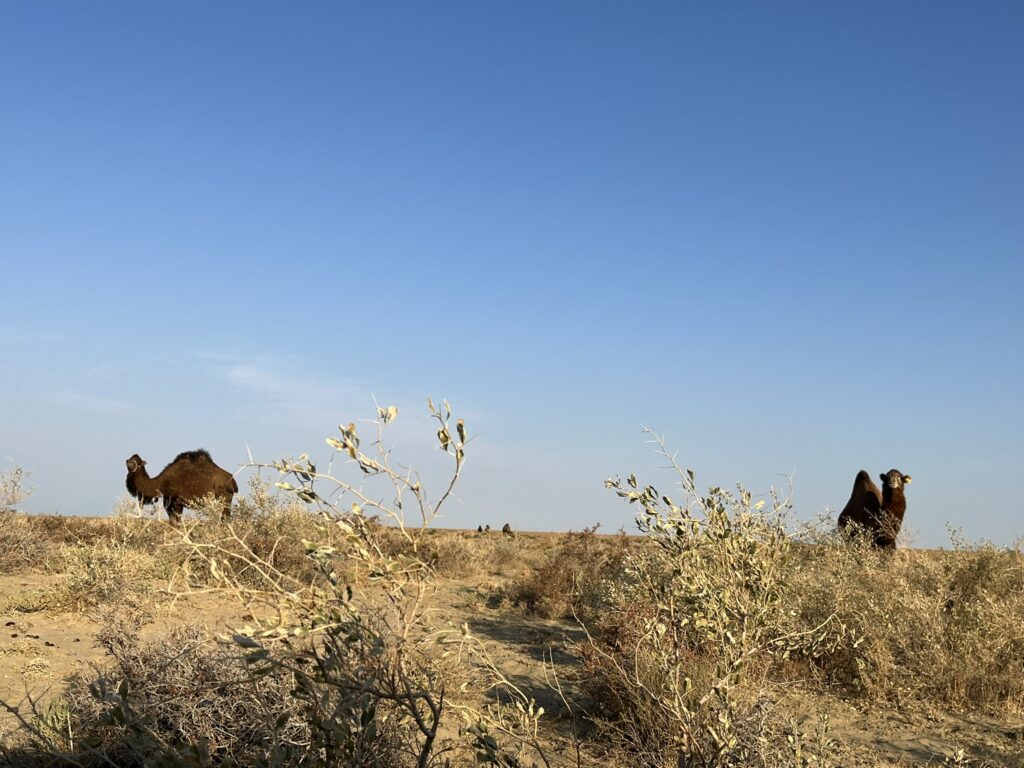
Reviving the Aral Sea
In 1991, newly independent Kazakhstan acquired US$87 million from the World Bank and built a permanent dam across the narrow entrance to the North Aral Sea. The 13-km long Dike Kokaral was completed in 2005 and yielded results much faster than expected. Within a year — instead of ten years — this tiny puddle eventually grew back to about 75% of its original size. Slowly, the water’s salinity dropped from over 90-100 g/L to 10g/L (this slight salinity was why the Aral was always called a sea rather than a lake), and is now at a mere 2 g/L. In effect, it’s now a freshwater lake.
The flounders, brought in by the river, were the first to return. But the locals, unfamiliar with this fish, didn’t eat it. Two Danish tourists, one of whom was a fisherman, visited in 1991. Realizing that the fishermen didn’t understand that this bottom feeder couldn’t be caught with the local floating nets being used, they went home, secured a $1.9 million grant and returned in 1996 with truckloads of supplies from nets to motorboat engines. Organizing and showing the region’s fishermen how to fish for flounder proved to them that the sea was still alive.
The Danish Society for a Living Sea used a grant from 2004-08, just as the sea was returning, to help the fishing industry develop into a business exporting fish to Russia, Ukraine, Georgia and other Baltic countries. As of now, the North Aral Sea annually produces 8,000 tons of flounder, bream, carp, walleye, pike and catfish, most of which were sold to Russia and Ukraine before the war.
Industrial fishing season is wintertime. By January, the surface becomes thick enough to hold the sledges that, drawn by either a camel or a horse, stand in the outdoor exhibit area of the Aral Fishermen Museum. Holes are cut in the ice, and nets are used to catch fish below the ice and snow. Small boats are used for spring/summer fishing for personal consumption.
The effects on the 14 villages surrounding the North Aral Sea are obvious as we drive through two of them. Buildings are going up, for “sons getting married and moving out of their parents’ home.” Descendants of those who moved to cities have slowly trickled back. In one village, the original 90 households shrank to just four during the years of the sea’s disappearance. Now it contains 40 households.
Electricity has been installed, and televisions are available in all homes. Russian jeeps are in the streets. Today, every home owns a motorcycle, whereas in the past every village used to own just one or two motorbikes, which are quite vital for rounding up herds of camels, horses or sheep. Although fishing is the main industry, all households still raise animals.
In the late afternoons, everywhere in Kazakhstan the villagers’ flocks return by themselves to get milked, each animal knowing to which house to go. In the day, they graze on public land. As I was marveling at this great fraternity among ranchers, my guide sighed that it’s soon coming to an end, for land is now being sold to farmers, and disputes over grazing rights have started.
The health problems caused by inhaling salt-and-pesticide-laden winds have vanished, along with the changes in the climate. Summer is less hot; winds less strong and spring rains have returned. The salt industry continues to thrive, mainly through Araltuz, which has been mining the salt lakes since 1925.
Despite all this success, the Aral Sea hasn’t returned to its original size. In fact, water needs to be released from its sluices to prevent overspill. For some years already, two options have been proposed: (1) raise the Kokaral Dam by 20-22 feet or (2) build a second dam across a narrow channel in the northeastern part of the North Aral Sea, thus creating a two-level sea and causing the northernmost part to reach its original pre-1960 borders, at the threshold of the town of Aralsk.

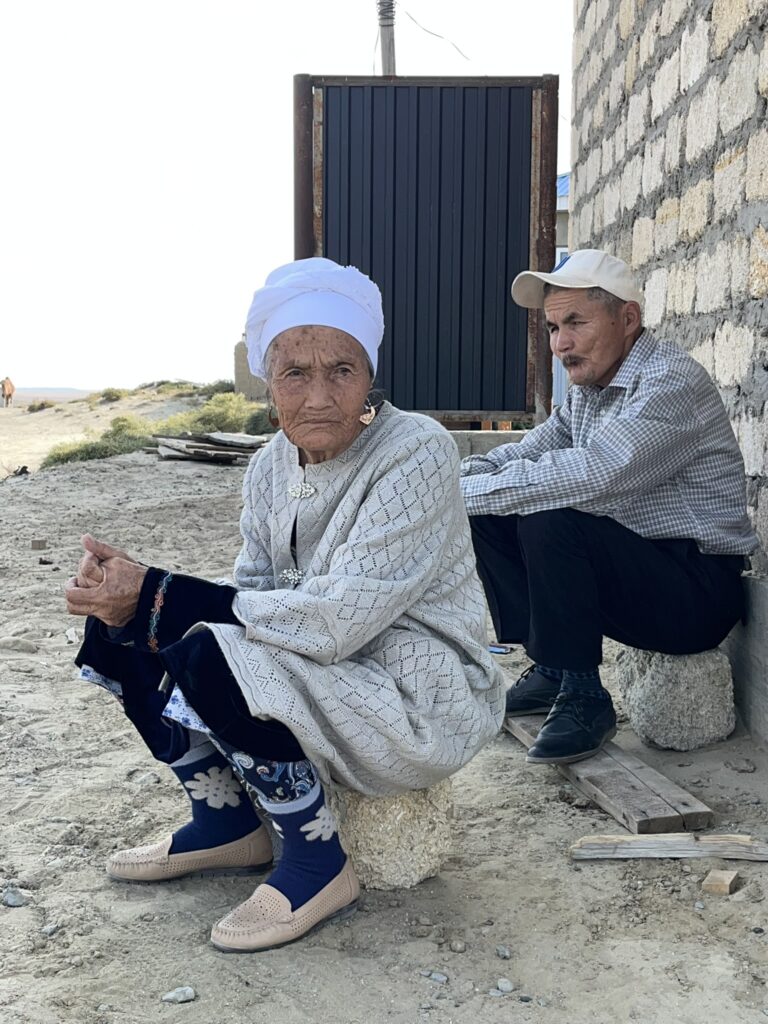
“Are the people giving up on the government moving forward with either plan?” I ask. “No,” replies my all-knowing guide, a local resident. “Once, they didn’t believe any human effort would ever bring the sea back. Yet it has. So, they now believe that as long as they wait patiently, one day, their sons will again dive into the canal that reaches behind the museum over there.”
Indeed, Director Madi Zhasekenov of the Aralsk Regional Museum and Fishermen Museum confirms this. Opening the closed museum on this Sunday afternoon, behind it he showed me an immense rectangular pit stretching away into the distance. “This was a canal,” he explains, “connecting the sea to the town. The boats could come all the way to this pier to unload their fish. When I was young, I used to dive here with my friends and swim.”
The “Aral Atlantis”
A few minutes’ walk away, in the Regional History Museum, I found what I was looking for: artifacts — ceramic tiles, grinding stones, remnants of a brick plant, copper coins, jewelry and domestic utensils — from the “Aral Atlantis.” So it was true! I had refused to believe it when Serik mentioned how archaeologists confirmed the existence of three cities, or settlements, on the dried seabed, at 60 feet or more above sea level. He claimed the pottery shards dated to the 14th century. “No,” I had exclaimed, “that’s impossible! There was a sea there 700 years ago.” Well, apparently not.
Archaeologists, who had been digging around the Aral Sea’s northern shore since the 19th century, had ascertained the existence of a thriving sedentary civilization dating back to antiquity. This in itself was astounding, since historians had assumed this entire steppe area had only been populated by nomadic tribes. Then in 2000, some villagers from Karateren went hunting in the now dried up area surrounding what used to be the island of Barsa-Kelmes (meaning “I shall not return”), a nature reserve. There, they were astounded to see, delineated in white salt, the remains of a city! This finding was reported to the local government, which contacted the archaeological staff at the Kyzylorda University and other institutions.
This almost 15-acre city, soon named “Aral-Asar” (The Aral Trail) and likened by the initial researchers to Kazakhstan’s Atlantis, had a central residential zone, an industrial zone on the side and a necropolis consisting of two mausoleums later named Kerderi I and Kerderi II, which had foundations of stone slabs and walls of baked bricks over a meter thick. The facades were decorated with glazed tiles, and the entrance bore Arabic inscriptions in golden letters, clearly showing that Muslims lived there.
However certain artifacts, such as gold earrings in the form of bars, biting their own tail, indicate a strong pagan influence. Agricultural instruments and millstones, along with rice irrigation patterns, showed that the inhabitants grew and milled rice into flour, which was probably exported along the Silk Road. At least two more similar settlements were subsequently found.
The Mystery
But what caused the sea to cover up these cities after the 14th century? An archaeological report (Climate Management Centers — the CLIMAN Project) published in 2002 suggests climate change and the disappearance of irrigation following the Mongol invasion. They mentioned the 1960-90 irrigation policies as an example of irrigation practices affecting the sea level.
If this theory holds, never mind the fact that the Mongol invasion happened in the 12th century, shouldn’t the sea have existed before settlements and farming? Herodotus (5th century bce) writes that the Caspian and the Aral seas used to be a single body of water. However, the 6th century ce Byzantine historian Menander Protector describes the area as “a system of lakes” with a city on its banks.
The plot thickens: A big sea in antiquity, several small lakes in the medieval era, flooded into a sea again sometime in the 15th or 16th century, only to dry up again in the late 20th century. Is it simply, really due to climate changes and agricultural practices? Quite by chance, in my travels I stumbled upon a rumor: Over-irrigation was only part of the story. Such large, mighty rivers as the Syr Darya and the Amu Darya could easily withstand diversion into cotton fields. No, said the rumor, the real reason lies elsewhere.
Between 1949-91, Moscow exploded 456 nuclear bombs in Kazakhstan, mostly in the northeast and various central areas, treating the Central Asia steppes as uninhabited. The rumor mill claims that these explosions caused a shift in the tectonic plates that, in turn, resulted in the Aral Sea leaking its waters away, possibly partially into the Caspian Sea, which rose by 2.5 cm during those years.
There is definitely some geothermal activity in the area. In 1986, a geological team drilling on the former seabed had to abandon whatever they came for, because a hot spring gushed out. The area was built up to allow the 60-degree water to flow into a basin before returning into the ground.
No one knows why the Aral Sea disappears every so many centuries. And thus this phenomenon remains a mystery.
Dr. Fawzia Mai Tung is executive director of Tung Education Resources; leader of Equity and Inclusion Team, the Society of Children’s Books Writers and Illustrators Arizona Chapter (SCBWI-AZ); and secretary of the executive board and translation team consultant, Dimash USA Fan Club.
Tell us what you thought by joining our Facebook community. You can also send comments and story pitches to [email protected]. Islamic Horizons does not publish unsolicited material.
The post The Death and Rebirth of a Sea appeared first on Islamic Horizons.
]]>The post A Call to Action appeared first on Islamic Horizons.
]]>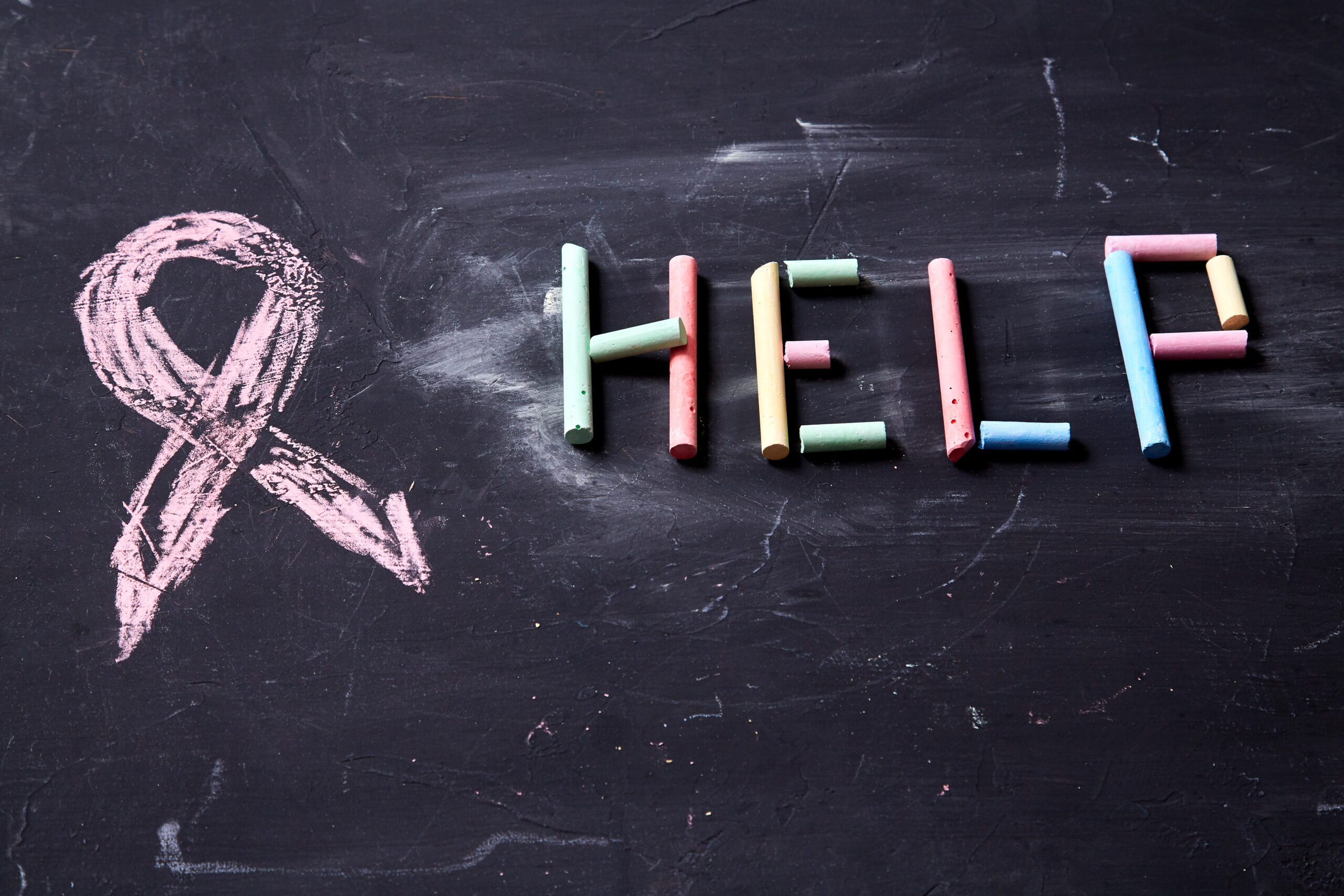
By Denise Ziya Berte
January/February 2023
From June 2022 to Sept. 2022, there were six publicly reported incidents of domestic homicide and suicide with over 14 lost souls in the Muslim American community. In examining these cases, the most frustrating and terrifying commonality is the absence of identifiable patterns. Six of the perpetrators were men; one was a woman. The victims ranged in age from an unborn fetus to grandparents in their 60s. All but one incident included a firearm. Some of the victims were married; others were divorced or separated. Among them were those who wore the hijab, had children and/or college degrees, were immigrants, had family support and/or good economic standing, and those who had sought spiritual, legal and social assistance. The incidents occurred in environments from suburbs to cities. In most cases the perpetrator took his/her own life as well that of the victim, children and extended family members.
Domestic homicide, defined as a murder that occurs in the context of an intimate (spousal) or family-based relationship, is a tragic but well-established phenomenon among Muslim Americans as well as in Muslim-majority countries worldwide. In the Americas, the rate of domestic homicide of women/girls has increased 9% over the past two years. The UN Office on Drugs and Crime (UNODC, 2021) reports that over 47,000 women and girls internationally were killed by intimate partners or family members in 2020, a figure equal to someone being murdered by a family member every 11 minutes of the year.
Sadly, these numbers have remained stagnant over decades despite numerous programs and legislation. Women and girls make up only 10% of the general homicide rate but 58% of domestic homicides, demonstrating that they are safer in the street than in their homes.
While domestic violence (DV) doesn’t always reach the level of homicide, the potential for lethality is always there. This crime is built on the premise that one person in the family or relationship, because of their status (e.g., parent, husband or primary financial contributor), has the right and responsibility to control others through force. This is diametrically opposed to the leadership based in love, compassion and mutual consultation described in the Quran and demonstrated by Prophet Muhammad (salla Allahu ‘alayhi wa salam).
DV may start as a pattern of behavior directed at managing the life of another individual through restricting his/her finances (e.g., if the individual can work, where they can receive funds from and what they can use their own money for), movement (where and when he/she can leave the home), legal status (withholding passports, marriage contracts, immigration visas and other important documents) and association (what friends and relatives he/she can see). DV includes emotional (humiliation, continual criticism), verbal (cursing, threatening and name calling), sexual (forced sexual activity) and physical abuse (biting, hitting, pushing).
Historical data has established that those who seek help and try to actively stop the pattern of abuse are most at risk in terms of serious injury, the kidnapping of their children and even death. This leaves victims little hope of escape or change. Domestic homicide occurs when the perpetrator feels that the situation is out of his/her control and becomes convinced that the mere right of existence of the other person(s) outside of his/her “governance” is unacceptable. Sadly, the perpetrator’s family and friends may even increase the pressure by framing the situation as an embarrassment to the family, the work of Satan or the spouse “getting away” with something, instead of helping him/her accept reality and reform his/her behaviors.
The Peaceful Families Project (PFP) is a 22-year-old U.S.-based national nonprofit organization working to eliminate family-based violence in Muslim homes using Islamic values and teachings through training research, resource development and affiliated partnerships. The Quran and Hadith are clear on women’s rights (4:1); the model of a marriage based on love, compassion and mercy creating peace for all involved (30:21); and the prohibition of oppression and maltreatment (4:19) — yet somehow our communities aren’t upholding these most basic tenets.
The level of denial seems to be the biggest obstacle: “Not in our community,” “I’ve never heard of such a thing,” “It’s a Western problem” are the most common responses to the presented data. If people don’t acknowledge a social reality, it’s almost impossible to address or prevent it.
In 2011, PFP, in coordination with Project Sakinah, conducted a community-wide survey of DV in the Muslim community. It found that 53% of Muslims had faced violence perpetrated by family members and 66% knew of a Muslim that had been physically abused by a family member (parent, sibling, or spouse), despite Islam’s clear mandates and models for leadership, conflict resolution and peaceful partings.
PFP offers a wide variety of relevant programs, resources and curriculums focused on Peaceful Parenting (non-violent child rearing), Peaceful Futures (curriculum on Muslim identity and developing healthy relationships for middle school, high school, and university-aged youth), Peaceful Partners (Male Allies programs), Muslim Abusive Patterns Intervention (a faith-based curriculum for those engaging in family-based violence), Peaceful Partings (programing for divorce and co-parenting), as well as Peaceful World (international initiatives to spread Peaceful Families’ mission to Muslims worldwide).
These programs are open to all and generated locally through PFP trainers and supporters. PFP holds an annual training of trainers workshop for interested individuals as well as several community-based trainings and activities — both virtually and in person — monthly for organizations willing to host events.
Incidents of domestic homicide cast a shadow on Muslims by tarnishing Islam’s reputation as the perfect religion and plant seeds of doubt in Muslims, who begin to consider leaving Islam due to this misrepresentation and the support given to the perpetrators. In 2013, the Pew Foundation reported that 25% of individuals raised in Muslim homes abandon Islam. Victims of domestic and family-based violence, especially where the perpetrator uses the Quran or Hadith to justify their brutality, often become confused and believe that Islam promotes oppression, injustice and violence against the innocent.
Due to the recent tragic events, PFP is initiating a national and international project to recognize, document the stories of and honor all Muslim victims of domestic homicide. Data will be collected to help DV experts identify the critical factors that lead to domestic homicide and how we can prevent any more loss of life. Equally, as a community we will be able to hear the victims’ names and stories, make du‘a for them and place their lives in the high regard — as they so rightly deserve.
While we are aware of and deeply understand the effects of the pervasive Islamophobia faced by many Muslims worldwide, community members cannot use this as an excuse to deny the reality of domestic homicide in their midst. PFP is committed to gathering information about these narratives, for increasing our knowledge about the dangers of family-based violence and honoring its victims is part of the basic Islamic obligation to oppose oppression. Having definitive data will increase our community’s awareness and create more effective responses.
PFP asks everyone who is aware of a Muslim victim or incident of domestic homicide in the North American community to participate in this critical activity. The data will be analyzed in its conglomerate form, and no personal narrative will be used in an identifiable manner without the appropriate family members or representative’s explicit desire and permission.
DV is a form of oppression, and we are responsible for confronting oppression in all of its forms.
“I heard the messenger of God say ‘Whoever of you sees an evil, let him change it with his hand: and if he is not able to do so, with his tongue, and if he is not able to do so, with his heart. And that is the weakest of faith (Muslim, 34; “40 Hadith an-Nawawi”).
In contemporary terms — with our hands (offering direct support to victims, donating to organizations like PFP, volunteering at a local DV shelter, physically stopping domestic violence when it occurs in front of us), with our tongues (speaking out against DV in our masjids, at community events and within our families; teaching about healthy relationships in youth programs and in pre-marital classes, etc.), and in our hearts (making du‘a for the victims of family-based violence, researching and learning more about DV in our community and studying the verses and hadith that address family relationships).
Three things you can do immediately: • Muslim Men. Take the peaceful partner pledge • Muslims aged 18+. Complete the American Muslim Intimate Partner Violence Survey (bit.ly/AMIPVsurvey) and • All Muslims. Learn more about DV, support PFP’s efforts to eliminate DV in our community by following us on social media, sharing resources and donating.
Denise Ziya Berte, Ph.D., is PFP’s executive director.
Tell us what you thought by joining our Facebook community. You can also send comments and story pitches to [email protected]. Islamic Horizons does not publish unsolicited material.
The post A Call to Action appeared first on Islamic Horizons.
]]>The post The Strength of Brotherhood appeared first on Islamic Horizons.
]]>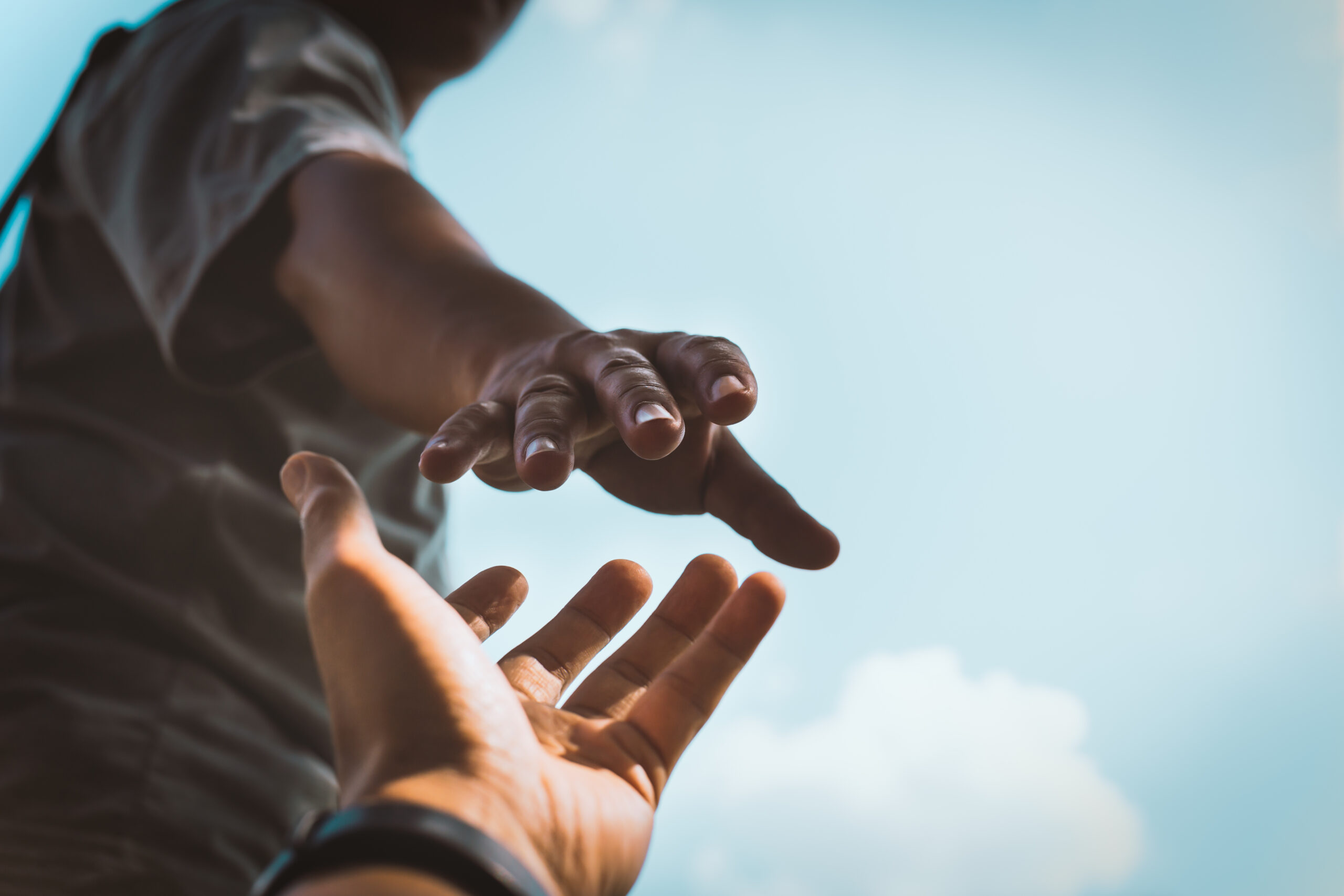
By Jasmine Ali
January/February 2023
“A person should help his brother, whether he is an oppressor or is being oppressed. If he is the oppressor, he should prevent him from continuing his oppression, for that is helping him. If he is being oppressed, he should be helped to stop the oppression against him.” Prophet Muhammad (salla Allahu ‘alayhi was sallam) (“Sahih Bukhari,” Vol. 3, Hadith 624).
The Peaceful Families Project (PFP) is a nonprofit organization dedicated to addressing violence in Muslim homes within the framework off Islamic principles. The most common type of such violence is domestic violence (DV), defined as a method of physical, sexual, verbal, psychological, emotional, financial and/or spiritual abuse conducted by an adult member of the home, most often the husband. DV can be described as a cycle of intentional behavior designed to, either consciously or unconsciously, obtain and maintain power and control over another family member.
According to the Merriam-Webster dictionary, oppression is an “unjust or cruel exercise of authority or power.” As such, we can see an almost parallel concept. What, then, does our faith instruct us to do when faced with the knowledge that individuals in our community are oppressing others? We are instructed to stop the oppression.
Our Peaceful Partners program is working to do just that by utilizing our not-so-secret weapon: Male Allies, Muslim brothers from across the country who meet monthly to brainstorm ideas and develop relevant curriculum components for fellow Muslim men. Through DV studies and research, we as a country have learned that interventions led by men who are trusted and respected by those men who engage in DV tend to have the most impact on behavioral change. This reality led to the creation of Peaceful Partners, the backbone of our curriculum development to directly prevent and address this practice.
Being a faith-specific organization, our organization transcends the clinical research and pulls in guiding principles that originate from the Quran and Sunnah. Our Male Allies both discuss ways to address change and shoulder the roles of change-maker and role model. They dedicate themselves to their communities as representatives of Islam and peaceful foundations in relationships. Using Islamic principles, they consult with local imams, demonstrate peaceful interactions and showcase how to change the contrary cultural narrative of how Muslim men are “supposed to” act toward their wives, children and family members.
In conjunction with Peaceful Partners, PFP has been working to launch Peaceful Futures, Peaceful World, Peaceful Parenting and Peaceful Partings. Peaceful Futures, launched in 2022 for middle school, high school and university/college-aged individuals, explores Muslim identity, gender, family, healthy relationships, emotional management, diversity/tolerance and cyber citizenship. Peaceful World offers the Peaceful Family curriculums and trainings to our global partners in Canada, Palestine, Pakistan and beyond. Peaceful Parenting, which will be launched in a few months, works to enhance the development of strong Muslim individuals through positive, effective behavioral management skills and an increased understanding of children’s emotional, cognitive and spiritual development. Peaceful Partings, to be launched later this year, explores the gift of family restructuring via divorce or separation by focusing on how to manage grief, co-parenting and re-building trusting collaborative family systems to support children and adults through the challenges of change.
By utilizing all of our current and upcoming programs, the Peaceful Families Project is working to holistically stop DV. With our community’s support, the professional knowledge of our curriculum developers and the dedicated effort of our Male Allies, we are dreaming of a violence-free future. We are dreaming of peace, in sha’ Allah.
Jasmine Ali, MSW., is Coordinator of National Programming at PFP.
Tell us what you thought by joining our Facebook community. You can also send comments and story pitches to [email protected]. Islamic Horizons does not publish unsolicited material.
The post The Strength of Brotherhood appeared first on Islamic Horizons.
]]>The post The American Muslim Intimate Partner Violence Study appeared first on Islamic Horizons.
]]>
By Tahani Chaudhry
January/February 2023
Anas ibn Malik reported: The Prophet said: “Seeking knowledge is an obligation upon every Muslim” (“Sunan Ibn Majah,” 224).
The Peaceful Families Project (PFP) deeply values and prioritizes the efforts to seek knowledge and make it accessible to the Muslim community. PFP has a long history of engaging in scientifically based investigations, alone and with partners who seek to increase Muslims’ knowledge of the range and impact of domestic violence (DV), child abuse, sexual violence, gender-based violence and other related topics on our community, both here and abroad. Our research and resource development program aims to utilize this knowledge to explore our community’s unique strengths to deal with these social issues and utilize an integration of Islamic teachings and psychological knowledge to serve as a foundation for the prevention activities and resources (evidence-based practice).
To eliminate DV from our community, we must first know what it looks like. Unfortunately, due to stigma and lack of resources, this knowledge is limited. In a 2009 survey of 241 American Muslims conducted by Sound Vision and Islamic Social Services Association USA, 70% of respondents knew someone who had experienced DV. In 2011, PFP and Project Sakinah launched a national survey of DV in our community. Half of the 801 respondents had experienced some form of DV, and one-third of respondents had experienced abuse in an intimate relationship. In this sample, men tended to report having experienced child abuse, whereas a majority of those reporting intimate partner abuse were women. The scarcity of data limits our ability to address this problem.
In an effort to increase and update our knowledge, Dr. Olubunmi Basirat Oyewuwo and PFP have launched a survey to study DV in the Muslim American community. One of its goals is to learn the attitudes, beliefs and experiences of DV in our community in order to inform the creation of new ones, and to support existing intervention and prevention strategies. The lack of relevant data presents funding challenges to those who desire to prevent, intervene and inform our knowledge of DV.
As a reader, you can, among other things, support such efforts by taking the American Muslim Intimate Partner Violence survey. Anyone who identifies as Muslim, is aged 18+ and lives in the U.S. is eligible to participate. The survey takes about 30 minutes to complete and can be completed by phone, tablet, or computer. Your voice is essential, and we want to hear from you.
Tahani Chaudhry is a graduate research assistant in clinical psychology at George Mason University.
Tell us what you thought by joining our Facebook community. You can also send comments and story pitches to [email protected]. Islamic Horizons does not publish unsolicited material.
The post The American Muslim Intimate Partner Violence Study appeared first on Islamic Horizons.
]]>The post The Psychology of Perpetrators of Domestic Violence appeared first on Islamic Horizons.
]]>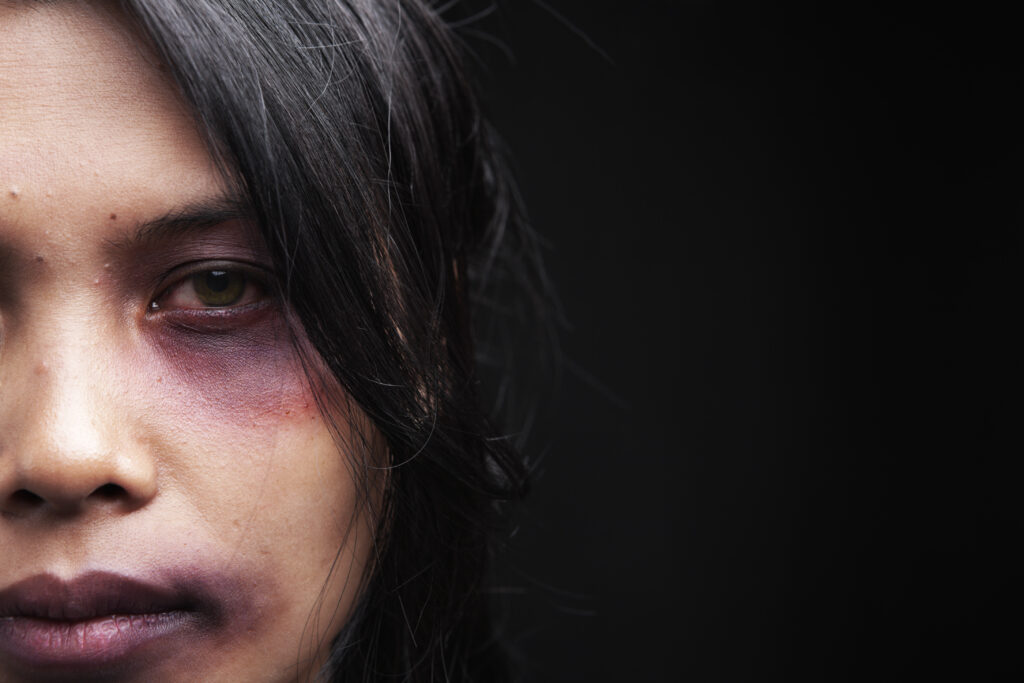
By M. Basheer Ahmed
January/February 2023
Intimate spouse violence (IPV) affects the lives of millions of women, children, families, and societies worldwide.
In the Islamic context, intimate spouses refer only to a husband and a wife. Despite serious attempts to educate and help both the abusers and the abused, IPV prevalence rates are rising. Data suggest that the pandemic and its associated lockdowns might have led to further increases.
There is comparatively little information available on IPV’s prevalence among Muslims. Physical IPV is reported to be approximately 30-55% in Jordan, Saudi Arabia, Pakistan, Iran, and Bangladesh. Many Muslims living in the West also experience it.
Quranic teachings state that all human beings — without exception — are equal, that men and women are spouses and that no one has a level of authority over others. The most righteous person is the most honored in God’s sight (9:71). The marital relationship is described as one of tranquility, kindness, mutual love and affection, respect, caring and mercy, “O believers, treat women with kindness even if you dislike them; it is quite possible that you dislike something which God might yet make a source of abundant good” (4:19). Prophet Muhammad (salla Allahu ‘alayhi wa sallam) said, “The perfect believer is one who is the best in courtesy and amiable manners, and the best among you people is one who is most kind and courteous to his wives.”
The Psychodynamics of Perpetrators
No single theory explains why men show such aggressive behavior. Abusers present psychopathological traits that could cause them to unleash violence on their spouse. Holzworth-Munroe and Stuart identified three types of abusers:
• Family-only abusers are described as less deviant on impulsivity, alcohol and drug abuse, criminal and other behaviors. They show poor social and communication skills, are dependent on their spouse and have a history of abuse in the family. Their relationships tend to be relatively stable, and they show higher levels of post-assault remorse.
• Borderline/dysphoric abusers tend to get involved in moderate violence and show impulsive behavior, anger and jealousy. They show a hostile attitude toward women and low levels of post-violence remorse (DOI:10.1037/0033-2909.116.3.476).
Most studies on the psychopathology of male domestic abusers have focused on personality disorders. People showing these disorders often have dysfunctional social relationships and don’t seek help unless the court orders them to do so. The commonly identified personality disorders are borderline, narcissistic, antisocial, and paranoid. About 25% of abusers may have depressive disorders. While these personality traits may not cause violent behavior, they may show resistance to the psychotherapeutic approach. One study found that head injuries were significantly associated with domestic abuse (DOI: 10.3109/00207450108994235).
Abusive behavior is most likely learned at home. If abusers grew up in environments where abuse was common, domestic violence may be passed down to children as a standard of behavior to be expected in intimate relationships. Boys may become violent adults, and girls may not identify violence as abusive, but accept it as normal adult relationship behavior (Jaffe P. & Suderman, M., Child Witness of Woman Abuse, in Stith S. and Strauss M., eds., Understanding Partner Violence,” 1995).
Most abusers feel an inner satisfaction from having total control over their spouse by humiliating her persistently. Similarly, the spouse learns to submit, which reinforces the abuser’s violent behavior and lets the cycle of violence continue. This attempted accommodation reinforces the abuser’s aggressive behavior and renders it more frequent and intense. Many women remain silent or do not report it to the authorities, considering it a private family matter. The lack of consequences only encourages the abuser to continue.
Abusers often justify their behavior and minimize its seriousness by blaming their wives for instigating it, which reinforces their belief that force is the only option: “She made me hit her.” They avoid guilt or shame and minimize their personal responsibility by saying, “It happens in every marriage,” and often dehumanize her by saying, “She deserved it.” Denial is the abuser’s most common defense mechanism. Some abusers even blame the victim, saying, “She self-inflected the injuries” (Ordoxa T., “Understanding Domestic Violence,” Iowa Medicine, Jan. 1995).
Abusive men come from a variety of backgrounds, religions, races, and occupations. Rigid sex role stereotypes are pervasive, as abusive men attempt to place their spouses in a submissive role. Their belief that they have the right to control the wife’s behaviors may be reinforced by the religious belief that she should be obedient and subservient.
There is a sharp divide between traditional interpretations of 4:34, which stress female obedience and male authority, and contemporary interpretations, which emphasize the financial component of men’s marital duties and limits a husband’s power over his wife.
Most often abusers justify their behavior by quoting religious teachings, saying they’re the head of the household and the wife must submit. In public, many of them appear to be “gentlemen.” They come to religious institutions and show generosity, believe they have a good knowledge of the Sharia, often keep a good public appearance, may have a stable work record, are good providers and appear to be caring family men — all of which give a false perception to the community members. Most abusers lack insight into their problems.
Common Anger vs. Power, Control and Abuse
Arguments occur at some point between all spouses over childcare, housework, financial and other matters. Domestic violence, however, differs from routine arguments and expressing one’s anger. Similarly, in certain cultures women are encouraged to stay home, walk behind their husbands and forbidden to drive. These examples of inequality and oppression shouldn’t be confused or equated with domestic violence, for the latter employs a complex verbal and/or physically aggressive pattern of behavior to control the victim, such as constant criticism, verbal abuse, threats, throwing objects, kicking, punching, and even stabbing.
The abusive and violent behavior continues and becomes more pronounced when the victim attempts to leave. IPV revolves around controlling another person. The spouse’s departure further enrages the perpetrator, who tends to show extreme violence and uncontrollable behavior. When such a person loses control, he may try to kill his wife because “If I can’t have her, no one can.” This possible fate increases significantly after she leaves.
Unfortunately, despite Islamic teachings of compassion, justice, and kindness, many Muslimas experience these tragedies. Domestic violence does not end until outside intervention takes place.
Raising Non-Abusive Children
During the last four decades, many religious and cultural organizations have sought to eradicate this menace. They have been successful in Tertiary Prevention, focusing on post-violence victims to deal with its consequences and offender treatment interventions. And yet IPV’s incidence and prevalence has increased because primary prevention efforts were not made to change those sociocultural norms that allow and condone violence.
Change will occur only by changing the relevant attitudes, beliefs and behaviors and promoting those that stop them. We need to promote a culture in which all relationships are built on respect, dignity, equality, and peace.
Islam categorically forbids violence against women for any reason. Verses 2:229-37, 4:19 and 4:25 proclaim that male-female relationship is to be one of kindness, mutual respect and caring. And yet the abusive behavior continues.
Education, the Best Preventive Measure
Reducing or eradicating domestic violence depends upon starting educational programs in all mosques, Islamic schools, and social organizations. These should be regular programs, not the result of some incident reported by the media. They must be tailored for men and women aged 6-13, 13-18 and adults 18 and above and cover Islamic teachings of gender equality, respect, and dignity; establishing a home environment of love, caring and mutual understanding; how disagreements develop and should be resolved; and how to make decisions on financial matters, child-rearing, and other issues via mutual consultation.
Childhood experiences are the major influencing factors for abuse and violence. As students 13 years and older have achieved a cognitive understanding of social and sexual issues, this is the right age to discuss these issues in joint classes. As such, they must develop an understanding of aggressive behavior and its consequences on self, family, and community; learn healthy ways to develop interpersonal relations; learn how to express their feelings, communication skills and power sharing; and be aware of attitudes that promote violence.
All Quranic verses supporting gender equality, respect and love must be emphasized at an early age if we hope to eradicate IPV.
Maintaining relationships requires discipline, which isn’t the same as forcing one’s spouse into submission. Instead, it means that both spouses must tolerate each other’s imperfections, thereby resisting the temptation to engage in behavior that leads to IPV. Another major issue is the lack of effective communication skills. In my practice, I found this to be the major reason why people turn to abuse and violence to resolve conflicts. Both spouses need to adhere to Islam’s teachings that promote love, peace, kindness, and gender equality.
Sometimes it may be necessary to confide in family members, friends, and colleagues. Many professionals can also help improve an abusive relationship. But if there is no improvement and if the spouses aren’t compatible, it may be more practical to get a divorce.
In sum: The head of the family has no right to abuse his wife emotionally, verbally, or physically. This is a crime, and there are legal consequences.
Dr. Basheer Ahmed, a former professor of psychiatry at Southwestern Medical School, Dallas, is chairman emeritus at the Muslim Community Center for Human Services, Dallas.
Tell us what you thought by joining our Facebook community. You can also send comments and story pitches to [email protected]. Islamic Horizons does not publish unsolicited material.
The post The Psychology of Perpetrators of Domestic Violence appeared first on Islamic Horizons.
]]>The post Community Bulletin: Leaders & Achievers for January/February appeared first on Islamic Horizons.
]]>ISNA 2022 Scholarships
In 2022, ISNA awarded a total of $26,000 from various scholarships — Amana Mutual Funds, Abdul Munim Shakir, Hajja Razia and Plainfield Muslim Women for a Better Society — to the following individuals:
- Amana Mutual Funds ($2,500): Mohammed Lashuel
- Abdul Munim Shakir ($1,000 ea.): Adam Almaleky, Bilal Chaudary, Falak Asad, Falisha Quayum, Fatima Zaidan, Hannan Mozip, Hafsa Sheikh, Hamza Rahmoune, Heza Shahbaz, Leen Bader, Madinabonu Ashurova, Manaal Zubair, Maymuna Mohamed, Momina Shinwari, Momna Ahmed, Rana Eltahir, Taqwa Siddiqui, Zayaan Khan and Gheed Nafea
- Hajja Razia Scholarship ($1,500 ea.): Kenny Solis and Ulaa Kuziez
- Plainfield Muslim Women for a Better Society Scholarship ($500 ea.): Eshal Khan
ISNA’s scholarship committee comprises Dr. M. Affan Badar (chair), Dr. Asim Ansari, Dr. Samina Salim and
ISNA executive director Basharat Saleem. Anjum Khan helped the committee, which reviewed applicants in the Awardspring system.
George Mason University Renames Its Center for Global Islamic Studies
George Mason University announced on Sept. 29 that in recognition of a $3 million donation, it would rename its Center for Global Islamic Studies the AbuSulayman Center for Global Islamic Studies.
“This gift helps solidify the center’s position as a global resource for the study of Islam. This will advance scholarship and the public’s understanding of this global religion that touches so many,” said Mason president Gregory Washington. “The center and its relationship with the Mirza Family Foundation is a testament to Mason’s commitment to diversity of thought and its growing reputation in Islamic studies globally.”
Abdul Hamid AbuSulayman (chairman, the International Institute of Islamic Thought), an early advocate of studying Islam from a global perspective, passed away in August 2021.
M. Yaqub Mirza, Ph.D. (member, the College of Humanities and Social Sciences, the Dean’s Advisory Board and a former George Mason University Foundation trustee) said AbuSulayman was “a giant among giants” whose doctoral thesis, “Towards an Islamic Theory of International Relations” (1993), was revolutionary in its countering of the field’s traditional, Eurocentric view, which often overlooked the impact of Muslim countries and cultures.
The gift will create new community resources, produce research and support undergraduate and graduate students. Mirza said he expects the center, which is currently exploring connections with centers in Malaysia, Indonesia, Bosnia and South Africa, will become a “hub of exchange for Islamic students across the globe.”
“We want to begin trying to reflect this global Islamic studies paradigm in new international, institutional partnerships, where we begin connecting ourselves with similar centers that do Islamic studies research with a common approach in other countries around the world, including Muslim-majority ones,” said Peter Mandaville, the center’s outgoing director and Mason professor of international affairs. “These new international partnerships will enable things like exchanging faculty, students and researchers.”
Mandaville will return as the center’s director after his leave of absence.
CISNA Achieves Lead Accreditor Status with Global Accrediting Agency
The Council of Islamic Schools in North America (CISNA), the world’s largest and only Islamic accreditation organization for Islamic schools, is now the lead accreditor due to its partnership with Cognia (previously AdvancED), an international nonprofit organization that accredites schools in 90 countries.
While the accreditation standards of a state or regional agency address general areas of institutional quality, said CISNA executive director Sufia Azmat, CISNA standards address all areas through an Islamic lens and a process focused on the school’s spiritual life. CISNA standards were revised in 2020 and again in 2022 after consulting education experts. These standards are categorized under four domains — governance, school leadership, teaching & learning, and school culture & environment — that provide a systematic framework for self-evaluation and improving programs and services.
In 2011, CISNA established a partnership with AdvancED to accredit Islamic schools with an added Islamic component. It began providing accreditation services the following year. Since 2020, CISNA has been working through a rigorous standards alignment process.
CISNA announced that member schools may now apply for accreditation, follow its standards and process for their visit, and be accredited by Cognia without hosting a separate visit or responding to a different set of standards. CISNA will conduct accreditation engagement review visits and assign the team members. Cognia will no longer be involved in assigning team members, and schools won’t have to go through its training and engagement review process.
All schools meeting CISNA accreditation standards and approved by its board now automatically qualify for Cognia accreditation.
Four Muslims in DHS Faith-Based Security Advisory Council
Salam Al-Marayati (Muslim Public Affairs Council), Imam Mohamed Hagmagid Ali (director, ADAMS Center), Imam Talib Shareef (imam, Nation’s Mosque) and police department chief Issa Shahin (Dearborn, Mich.) were named to the 24-member Department of Homeland Security (DHS) Faith-Based Security Advisory Council.
Reflecting on his appointment, Al-Marayati stated, “I look forward to working with faith leaders of other communities to determine the best steps in protecting houses of worship and our communities against any form of violence. I also look forward to developing relations with these faith leaders to develop a united stand for a pluralistic democracy.”
The council will provide organizationally independent, strategic, timely, specific and actionable advice to the secretary on diverse homeland security matters. Specifically, its contributions will enhance the department’s efforts to protect houses of worship; improve coordination and information sharing of threat information with the faith community and, through the faith community, within the broader communities that they serve; increase access to DHS resources by building trust and addressing potential barriers; and prevent, protect against, respond to and recover from acts of targeted violence, terrorism and other threats.
The council’s membership, which reflects President Biden and Secretary Mayorkas’ priorities on diversity, equity and inclusion, will ensure a wide range of diverse voices across various faith traditions. The council members represent various faith communities and a diversity of denominations, as well as law enforcement.
On Sept. 24, ten months after the Naperville City Council unanimously approved plans for the Islamic Center of Naperville (ICN) mosque-complex, a groundbreaking ceremony was held. Guests included Naperville city manager Doug Krieger and several city council members. The facility is expected to be completed by October 2023.
The expanded ICN will have a 28,400 square foot mosque.
The center, which has owned the 13.3 acres of open land for about 10 years, faced opposition and rejection, especially by its neighborhood Hindu residents.
Hearings before the Planning and Zoning Commission on the proposed mosque began in January 2021. After 15 meetings held over nine months, in October 2021 the commission voted 6-1 to recommend the city council allow the center to build a mosque hall, school, multipurpose hall and gymnasium in phases over several years. Included in its recommendation were a dozen conditions seeking to appease some of the concerns about traffic, parking, occupancy, fire safety and noise raised by residents of the neighboring subdivisions.
ICN president Kashif Fakhruddin said the elders and leaders started the journey with its first center in Naperville 31 years ago.
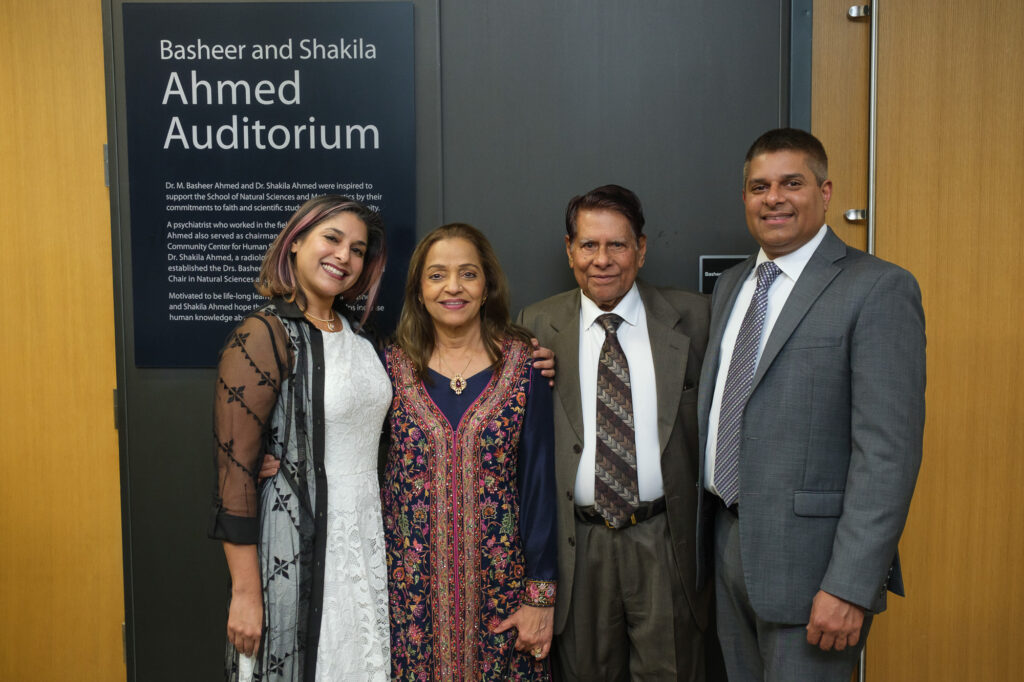
To leave a legacy to inspire generations of students, Dr. Basheer Ahmed and his wife Dr. Shakila Ahmed donated $1 million to The University of Texas at Dallas (UTD) to establish a distinguished chair in the School of Natural Sciences & Mathematics that will support its multicultural students in their studies and innovations, reported The American Muslim Today, Oct. 6, 2022.
Speaking at the Sept. 30, dedication, Basheer said, “I always had a desire to support the institutions which promote teachings of sciences and technology. Allah has given me the opportunity to accomplish this goal by supporting UT Dallas which is a great teaching institution and has a great potential to be a top-grade university.”
Basheer, a professor of psychiatry at the University of Texas Health Science Center Southwestern Medical School for several years before moving on to serve as the director of psychiatry departments in various Fort Worth hospitals, retired from the practice in 2005. He helped found the Institute of Medieval and Post-Medieval Studies, the Institute of Quranic Knowledge and Intra-Faith Religious Acceptance, as well as the Muslim Community Center for Human Services, of which he currently serves as chairman emeritus.
His wife Shakila is a board-certified radiologist.
In 1968, the couple migrated to the U.S. from Hyderabad, India.
Dane Richardson (assistant dean, School of Natural Sciences & Mathematics) said this is the first time the university has dedicated a structure to a practicing Muslim. UTD serves a significant Asian-American student population (32%) and has an international population of 17% with students from South Asia, China, Iran and Vietnam.
Azhar Azeez (CEO, Muslim Aid USA; a former ISNA president), highlighting the Ahmeds’ extensive list of organizations they have founded and their efforts to build interfaith relationships, said, “They both are shining examples of commitment, dedication and outstanding service to humanity and our beloved community. All their life they have strived to build bridges and break barriers.”
Dr. David Hyndman (dean, School of Natural Sciences & Mathematics) said the gift will fund opportunities for growth in science and mathematics, as well as enable thousands of students to engage in research.
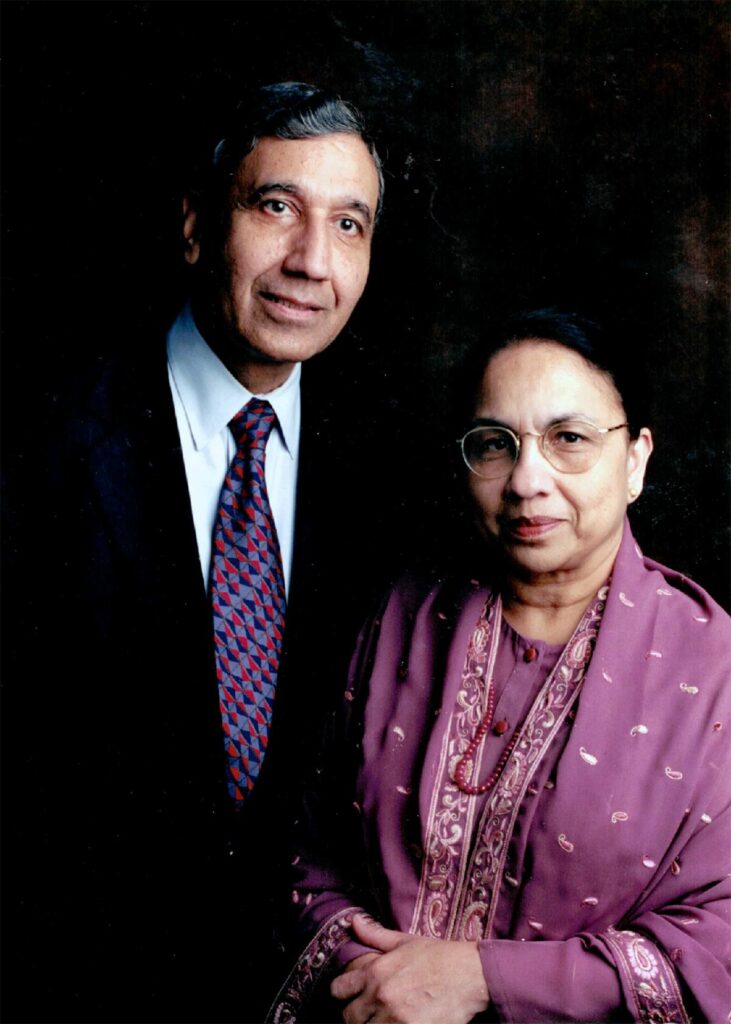
The American Islamic College announced the establishment of the Dr. Shakeela and Dr. Zia Hassan Institute for Interfaith Encounter (SZHIIE).
The institute will enable meaningful, life-changing inter- and intrareligious encounters within Chicago and beyond. The scope of its vision and activism will include research, teaching support, faculty fellowships, student internships, public lectures and workshops, community outreach, educational trips and public programs to promote transformative encounters between diverse believers and faith communities.
The Hassan Interfaith Fellowships will be an integral part of the new institute’s mission and vision.
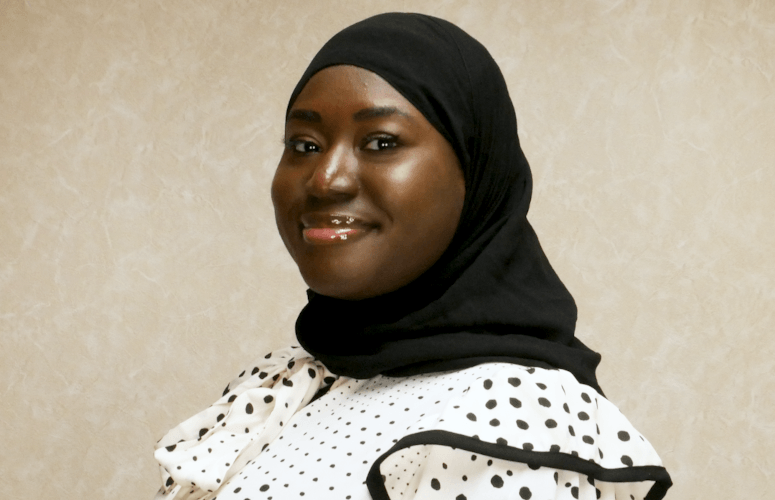
Madina P. Ouedraogo was appointed CAIR-New Jersey’s inaugural government affairs manager.
An immigrant from Burkina Faso, Ouedraogo is an alumna of New York University Robert F. Wagner Graduate School of Public Service, (M.P.A.’20) with a specialization in advocacy and political action. She’s also a graduate of The College of New Jersey School of Humanities and Social Sciences (B.A., ’18).
In a statement, she said, “As a staunch advocate for social justice and a proud Burkinabè – American, Black, Muslim woman, I am honored to utilize my skills and talents to serve my fellow Muslim brothers and sisters.
“Through my new role as the government affairs manager at CAIR-NJ, I hope to foster meaningful change for New Jersey’s diverse and vibrant Muslim umma in the political, advocacy, civic engagement, legislative and public policy arenas.”
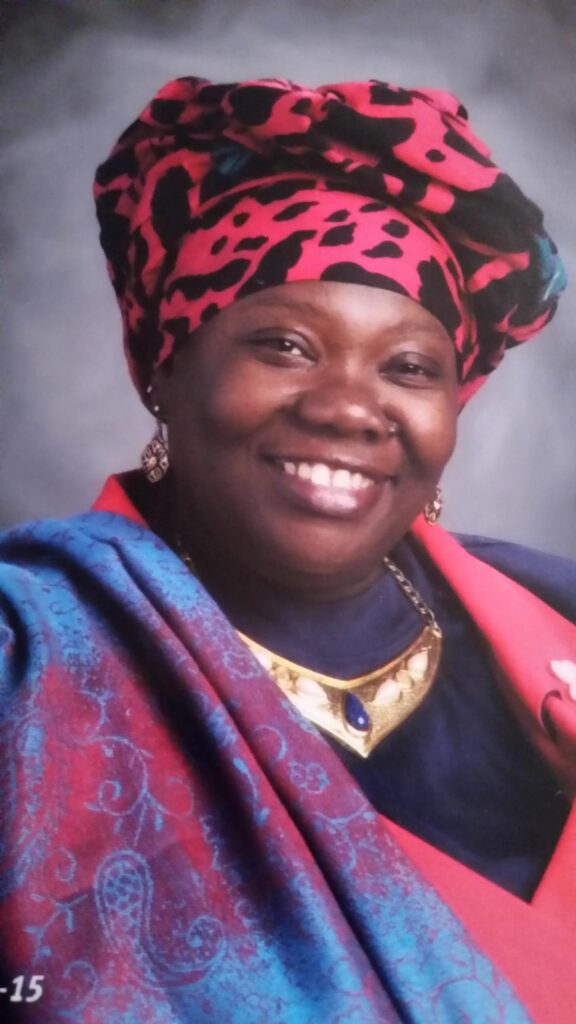
Qur’an S. Shakir, a seasoned educator, community activist, school administrator and vibrant voice in Islamic education, has joined the Islamic Schools League of America (ISLA) board.
Shakir (B.A., Georgia State University; M.A., National University; doctoral candidate, Fielding Graduate University), affectionately known as “Madame Q,” brings over 30 years of experience in education. A long-time ISLA supporter, she has been involved in many of its workshops and events. Most recently Qur’an was co-chair of its writing contest, “Celebrating African and African American Muslim History.” An Atlanta native, Madame Q is passionate about education with building strong relationships, families and communities.
A second-generation Muslim in a family with at least four generations of Muslims, she worked as an educator for more than 25 years: as a principal and earlier, as a teacher in the Mohammed Schools of Atlanta and as an educational consultant to local public and private school educators.
Shakir is helping ISLA develop its strategic plans to provide research, resources and relationships to full-time Islamic schools in North America.
Maqsood Quadri (M.S., Aligarh Muslim University, India) assumed charge at NAIT’s new executive director during October 2022.
Quadri is a familiar name in the Muslim American community, especially across Chicagoland and Illinois for his valuable contributions as a community leader.
A hydrogeologist by training, Quadri brings his multifaceted professional and management experience to NAIT. He has managed multimillion-dollar portfolios and held high-responsibility posts, solution-focused and senior management positions for 30+ years. In those positions, he delivered results and helped achieve organizational objectives by catalyzing new approaches, transforming culture and bringing the best out in team members.
Prior to joining NAIT, he was the chief operating officer at the Council of Islamic Centers of Greater Chicago (CIOGC) for four years. He also heads and sits on the boards of various prominent Islamic centers and community organizations in the U.S. and India.
Salah Obeidallah moved from executive director to president of Allied Asset Advisor (AAA) NAIT’s wholly-owned subsidiary. He remains the point person for Islamic centers’ investments through the Islamic Center Cooperative Fund.
Qadri Abdullah now leads the American Halal Institute (AHI), a wholly-owned subsidiary of NAIT, as director of operations.
Abdullah, who has spent 26 years in the food industry as a food scientist, quality manager and manufacturing plant manager, is well known among North American Muslims. Over the past 36 years he has actively served in the leadership roles and board membership of several local, national and international Islamic organizations. AHI offers a transparent and authentic halal certification, training, research and advocacy of halal goods and services.
Azam Nizamuddin, NAIT’s former chief compliance officer of AAA and deputy executive director and general counsel, has left the organization to concentrate on his political campaign in Illinois.
NAIT has moved its headquarters to 8925 S. Kostner Ave., Hometown, Ill. 60456.
On Oct. 29, after years of overcoming legal challenges and governmental hurdles, members of the Islamic Life Center in Carmel, Ind., broke ground for their mosque.
Nadeem Ikhlaque, Al Salam’s founding president, along with mayor Jim Brainard (R), Rep. Victoria Spartz (R) and Pastor (ret.) Jerry Zehr of Carmel Christian Church and a founder of the Carmel Interfaith Alliance, attended the ceremony.
U.S. Rep. André Carson (D) and state Sen. Fady Qaddoura (D) spoke at the joyous community event.
Located on a 15-acre site, the Center will feature a minaret, a prayer area, classrooms, office space, a gymnasium and a kitchen. Faisal Khan, a board member of the Al Salam Foundation, said that construction will take place over the next two years. The grand opening is planned for late 2024.
After years of resistance and litigation with the city, on Oct. 28 DeSoto County’s (Miss.) first mosque broke ground.
The Abraham House of God started as a vision between two friends who have been working since 2019 to get the mosque built in Horn Lake, Miss.
“We were talking about we needed a mosque or facility for us to go and practice our faith,” said founder Riyadh Elkhayyat, who said it’s been an unexpected journey to get to this point.
“I was so shocked and surprised [by the opposition], because this is my community. I was shocked that these people were so biased against Muslims. It has to be [the case]. There are churches wherever we are building our mosque.”
Finally, Elkhayyat got legal representation from the American Civil Liberties Union of Mississippi, and they sued the city for discrimination.
“It’s very historic because that would be the first mosque in north Mississippi. I think it’s historic for all the Muslim community in that region,” Elkhayyat told News3, WREG, Memphis.
The mosque is expected to be completed in about a year.
Anwar Khan (president and founder, OBAT Helpers), participated in the Muslim Philanthropists Mini-Summit (MPMS) at the Vatican in October. This October summit, part of the inaugural “Faith and Philanthropy Summit,” was organized by the Galileo Foundation in partnership with the Global Compact on Education (GCE), the World Congress of Muslim Philanthropists (WCMP), the Jewish Funders Network (JFN), the Lilly Family School of Philanthropy and UBS AG. It brought together 145 of the world’s leading philanthropists from five different faiths. The MPMS, held in conjunction with the Faith & Philanthropy Summit, was co-hosted by the Galileo Foundation, the WCMP and the Lilly Family School of Philanthropy’s Muslim Philanthropy Initiative (MPI).
“Pope Francis hopes that this convening will inspire new philanthropic partnerships across traditional faith lines, to tackle some of the world’s most pressing challenges in the areas of education, global health and sustainability in the service of the entire human family,” said the Galileo Foundation. The Vatican’s GCE, the WCMP, Lilly Family School of Philanthropy, JFN, as well as UBS, worked toward launching the new Human Family Fund, which will provide capital for new interfaith partnership projects to deliver opportunity and equality for the world’s most marginalized. During the summit with leading philanthropists Jeff Bezos and Laura Turner Seydel were brought together with key religious leaders including the Pope’s secretary of state.
Participants in the Muslim philanthropists’ mini summit discussed the role of philanthropy, current obstacles to human well-being and how philanthropy can impede those obstacles and result in a better future for everyone. Other topics discussed included the role of Islam, theology and religious practice in philanthropy. The discussion will culminate in an MPI-published white paper.
ACHIEVERS
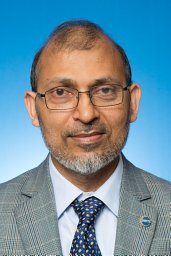
M. Affan Badar, PhD, CPEM, IEOM fellow, ISNA secretary and board member, was named associate editor of the Engineering Management Journal (EMJ) on Oct. 20, 2022.
This official journal of the American Society for Engineering Management (https://www.asem.org), is published by Taylor & Francis Group, London and indexed in Web of Science (Clarivate) and SCOPUS. In 2021, its impact factor was 2.548.
Badar, who has been employed at Indiana State University (ISU) since 2002 and is currently a tenured professor in its Applied Engineering and Technology Management Department and interim director its doctoral program in Technology Management, has an impressive career of service: professor and chair, Industrial Engineering & Engineering Management Department, University of Sharjah (2016-18; on leave of absence from ISU); an ISU interim associate dean of the ISU College of Technology (2014-15), AETM department chair (2010-14) and program coordinator (2007-10) and a member of the University Faculty Senate and College Faculty Council.
In addition, he is an ABET/ETAC commissioner who started as a program evaluator (EAC and ETAC) in 2010. He has published over 85 articles on reliability, quality, lean manufacturing, coordinate manufacturing, design and supply chain; secured over $1M funding from NSF, other agencies and industries; and served as editor-in-chief or for International Journal of Forensic Engineering & Management, editor of the journal Advances in Mechanical Engr, associate editor and editorial board member of several journals, among them the Int. J. of Quality & Reliability Mgt and NED Univ. J. of Research: App Sciences; and reviewer for various journals and conferences.
Selected in the 2022 IEOM Academy of Fellows, his name will be announced as a new fellow at the organization’s annual conference in Istanbul on March 7-10, 2022.
The Fellow distinction is the highest level of membership to recognize an individual’s contribution to industrial engineering and operations management. Fellows have distinguished themselves by conducting theoretical and applied research, implemented proven industrial engineering and operations management tools, improved the productivity of manufacturing and service industries, and created jobs and career opportunities for the betterment of humanity.
These individuals are expected to represent their profession and the IEOM Society, advise the IEOM Board of Directors, use their professional experience and skills to promote industrial engineering and operations management, as well as propose and lead strategic objectives that could increase membership and recognition of the organization and its members worldwide.
Badar (B.Sc. [Hons], industrial engineering, 1988, Aligarh Muslim University [India]; M.Sc.; industrial engineering 1990; MS, mechanical engineering, King Fahd University of Petroleum and Minerals, 1993, Saudi Arabia; and Ph.D., industrial engineering, 2002, University of Oklahoma) has published one edited book and two book chapters, as well as 80+ articles in refereed journals and proceedings on lean manufacturing, quality, reliability, engineering economy, healthcare and supply chain. He has received funding from, among other institutions, the National Science Foundation, Indiana Campus Compact, the Small Business Administration, ISU (Lilly Foundation), NATO, Union Hospital, Columbia House and Tredegar Film Products.
His co-authored proceedings papers received the Best Track Paper Award at the IEOM conferences in 2021 and 2020, and his co-authored journal paper was selected as a Highly Commended paper by the International Journal of Quality & Reliability Management in 2017. He received IEOM’s Teaching Excellence award at its 2020 conference in 2020 and was recognized with its Outstanding Service award and Outstanding Contribution award at its 2021 and 2020 conferences, respectively. He received the Albert Nelson Marquis Lifetime Achievement award in 2017 and Epsilon Pi Tau’s Warner Professional Practice award in 2015.
In addition to all of this, he has found time to organize several national and international conferences in the capacity of program, track, or technical chair and organizing committee member. He is chairman of Salfia Paramedical Institute (India); served on the Operations Management Board of India’s Jahangirabad Inst of Technology (2014-18); been a member of IISE, IEOM, ASEM and ASEE; president of AMSET (2016-17); vice president of the ATMAE Manufacturing Division (2012-17); a member on the Board of Directors of the IISE Engineering Economy Division (EED) (2012-14) and director of EED (2005-07).
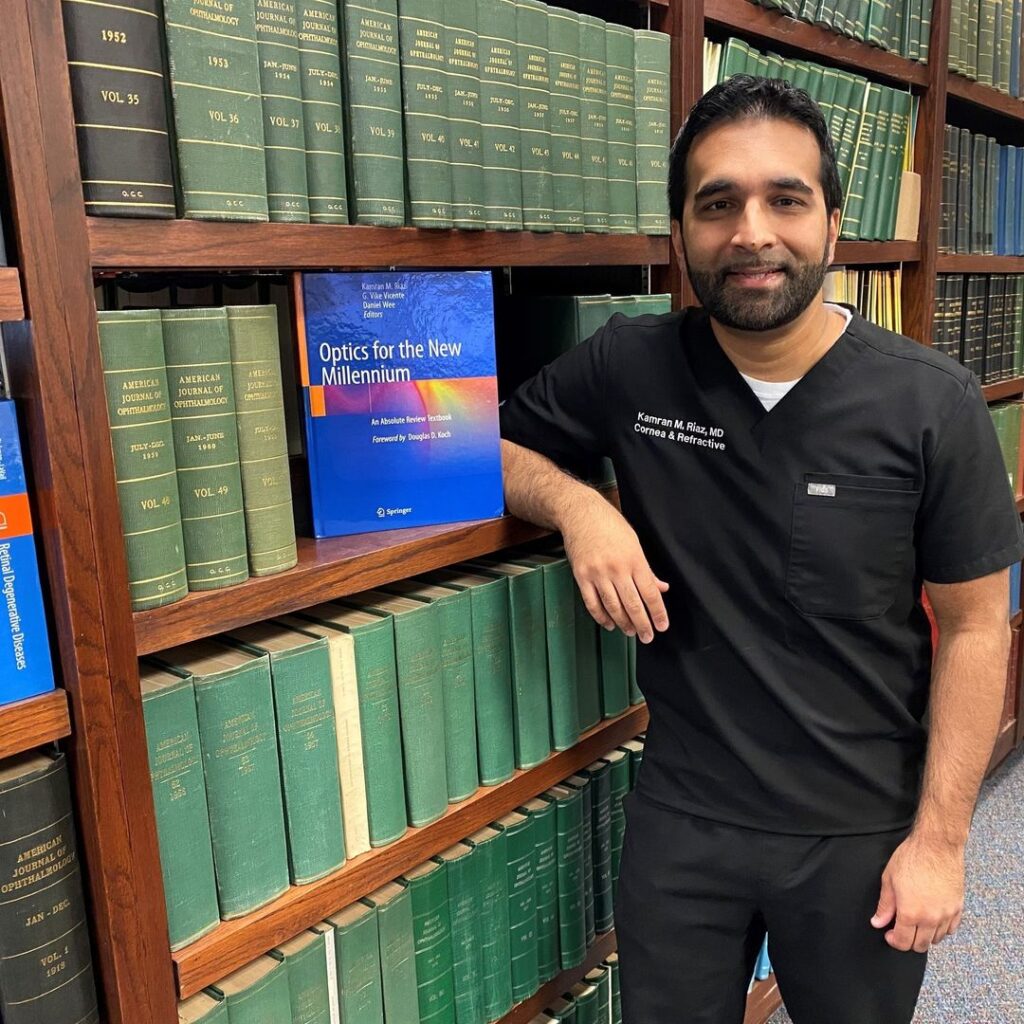
Kamran M. Riaz, M.D. has published a textbook, “Optics for the New Millennium: An Absolute Review Handbook of Clinical, Surgical and Testable Relevance,” coauthored with G. Vike Vicente and Daniel Wee (Springer Publishing, 2022).
Earlier in January, he published “A Clinical Atlas of Anterior Segment Optical Coherence Tomography” (SLACK Publishing) with B. Levinson and F. Woreta
Riaz (B.A., University of Illinois at Chicago, ’03; M.D., University of Illinois at Chicago, ’08; Phi Beta Kappa honor society), who memorized the Quran before high school, is a clinical associate professor at the University of Oklahoma’s Dean McGee Eye Institute.
Among his honors are “Top Doctors List 2022” (405 Magazine, January 2022), “Achievers Under 40, Class XVII” (The Journal Record, August 2021) and “40 Under 40, Class of 2021” (Oklahoma Magazine, March 2021).
He and his physician wife Sanaa have three children. He is fluent in Spanish, Urdu and Arabic.
CAIR recognized Ohio student athlete and activist Noor Abukaram as its American Muslim of the Year at its 28th annual banquet on Oct. 29.
Abukaram was an athlete on the cross-country running team at Ohio’s Sylvania Northview High School in October 2019 when she was disqualified from her track meet for wearing the hijab. She worked with Ohio senator Theresa Gavarone (R) to write Senate Bill 288, which prohibits schools and interscholastic organizations from adopting rules that ban the wearing of religious apparel during athletic events. Ohio Governor Mike DeWine (R) signed the bill into law.
Abukaram’s story has inspired nationwide efforts to protect the right to wear religious clothing in athletics.
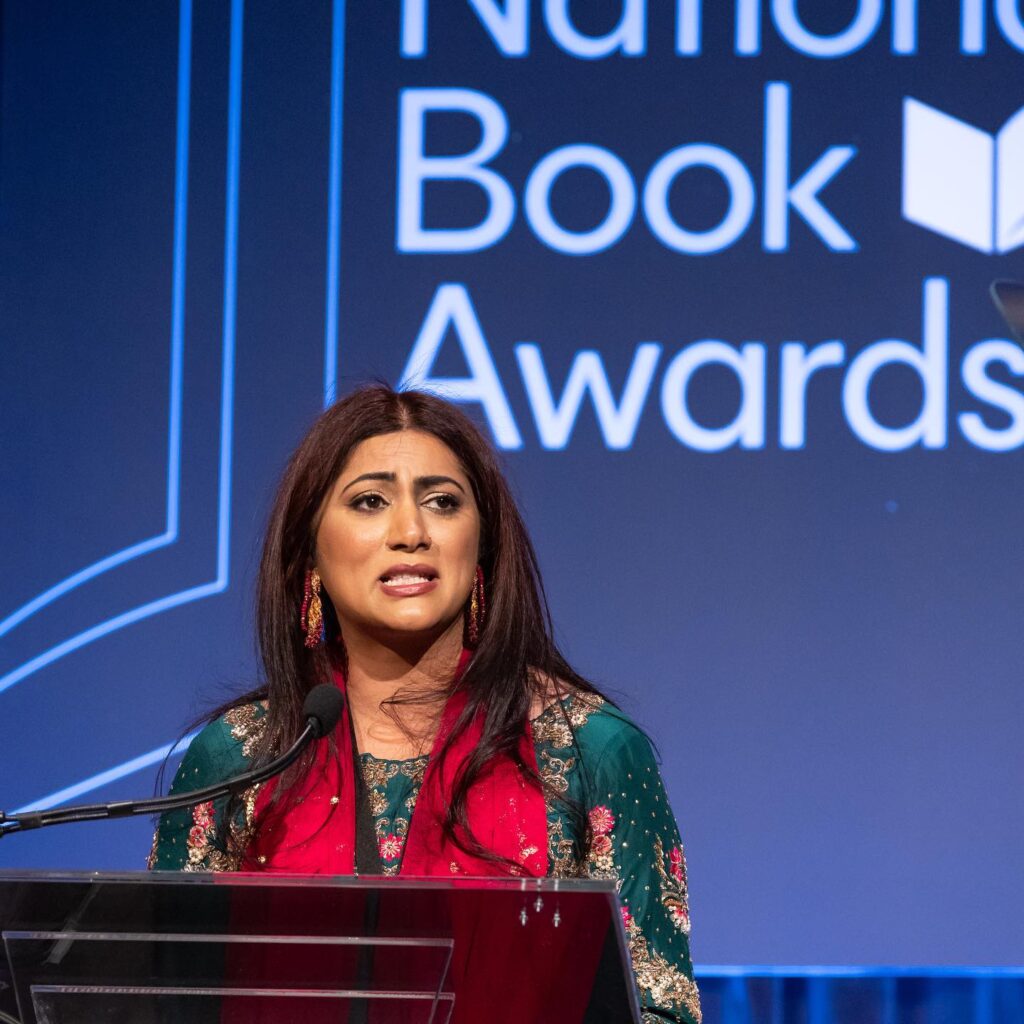
Sabaa Tahir a young adults novelist best known for her New York Times-bestselling “An Ember in the Ashes,” its sequels and the novel “All My Rage,” became the first Muslim American to win the National Book Award for Young People’s Literature.
These two novels were listed among Time Magazine’s 100 Best Fantasy Books of All Time in 2020. In 2022, “All My Rage” won the 2022 Boston Globe–Horn Book Award and the National Book Award for Young People’s Literature.
Tahir, who lives in the San Francisco Bay Area, has also published non-fiction reviews and essays in The New York Times, The Washington Post and Vox, during which time she interned at The Washington Post. After graduation, she took a job there as a copy editor.
Tell us what you thought by joining our Facebook community. You can also send comments and story pitches to [email protected]. Islamic Horizons does not publish unsolicited material.
The post Community Bulletin: Leaders & Achievers for January/February appeared first on Islamic Horizons.
]]>
